1. The visuals! Puzzle platformer-come-action RPG Even the Ocean is most readily set apart by its visuals. It's from the folks who made Anodyne, a cross between Yume Nikki and Link's Awakening that explored, in an abstract way, its young hero's feelings about his difficulties in fitting in due to his Asian heritage and economic background. What drew me to Even the Ocean, besides its pedigree, was the pixel art. The natural environments in this game are gorgeous:
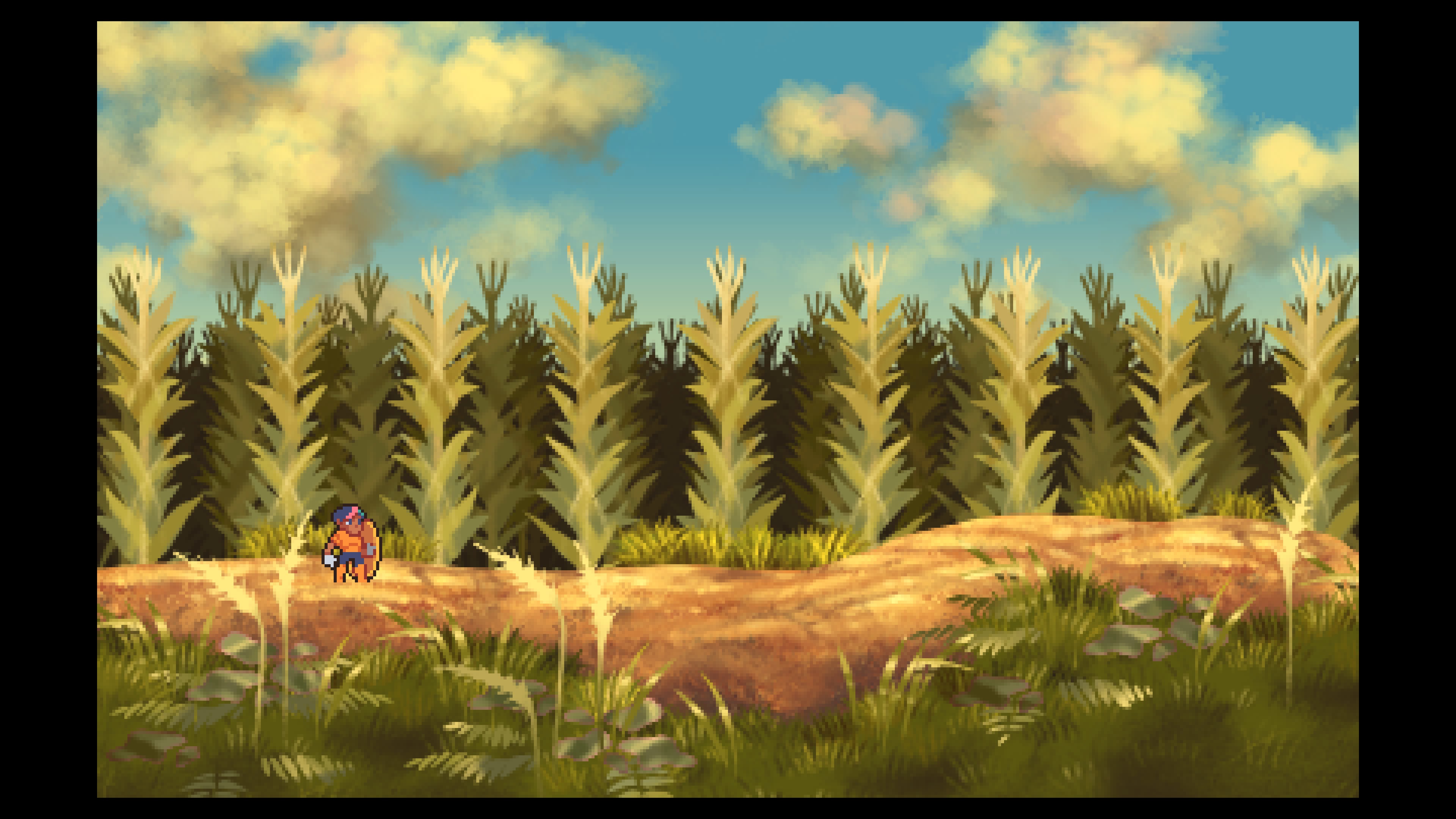
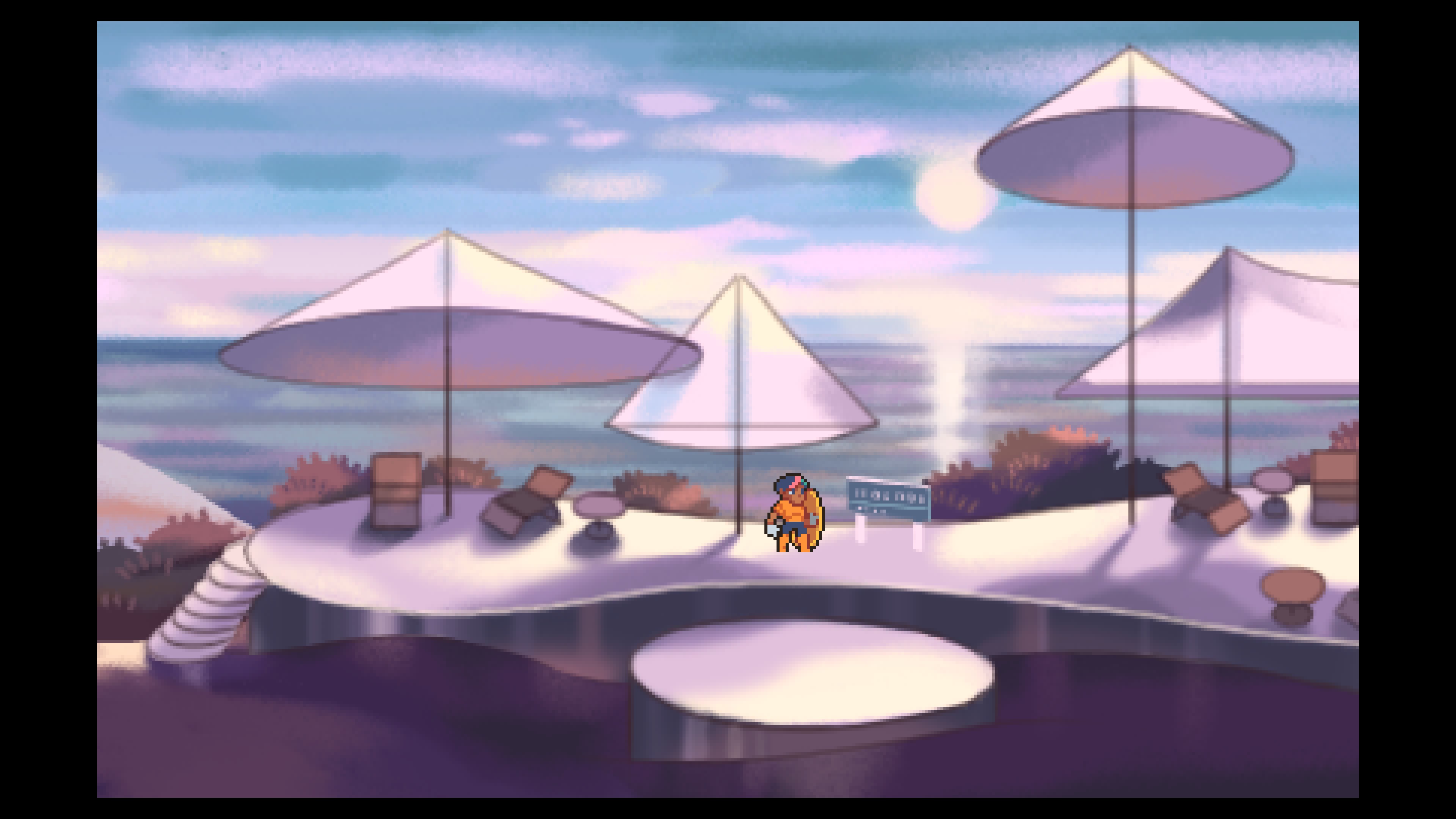
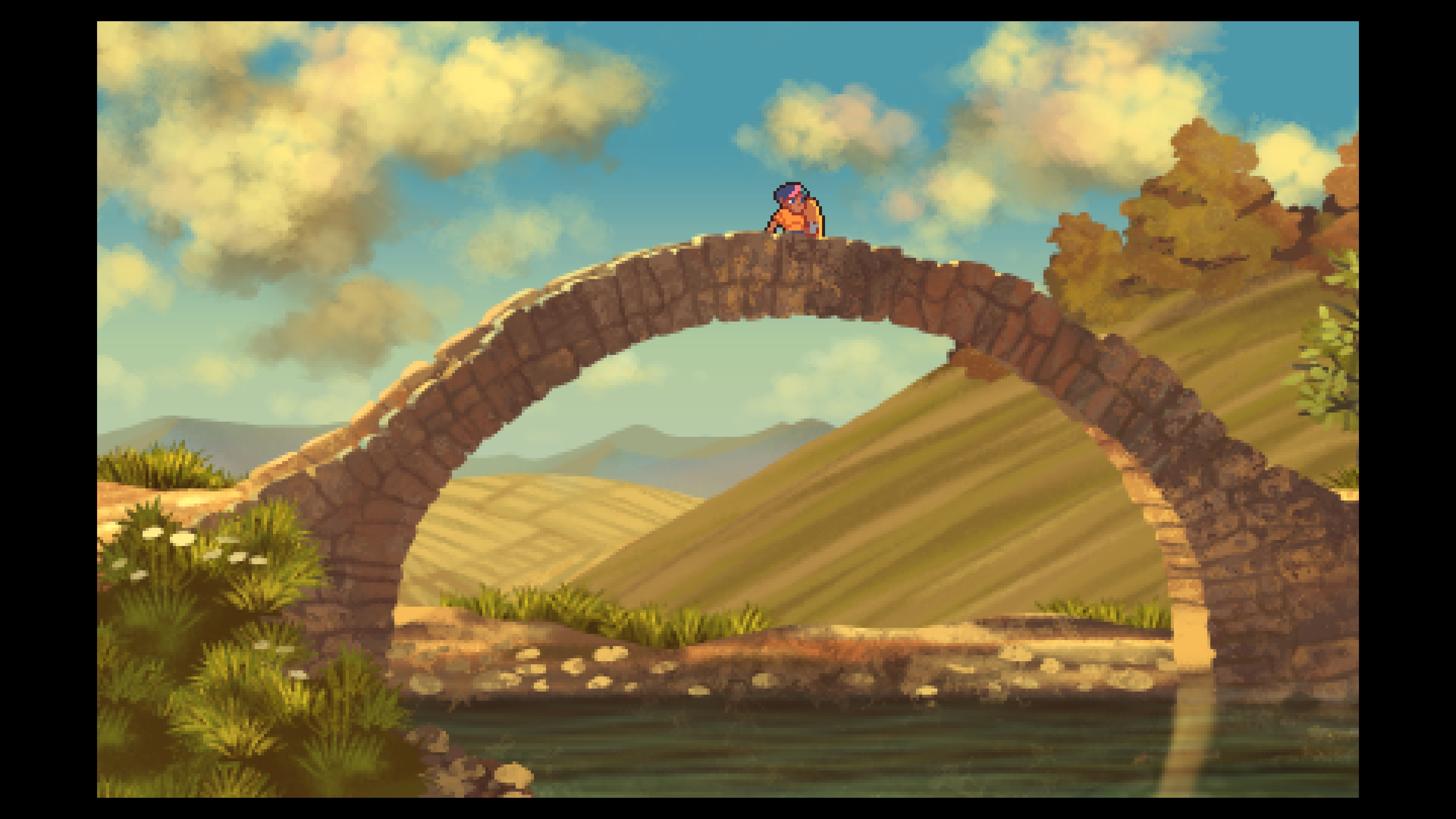
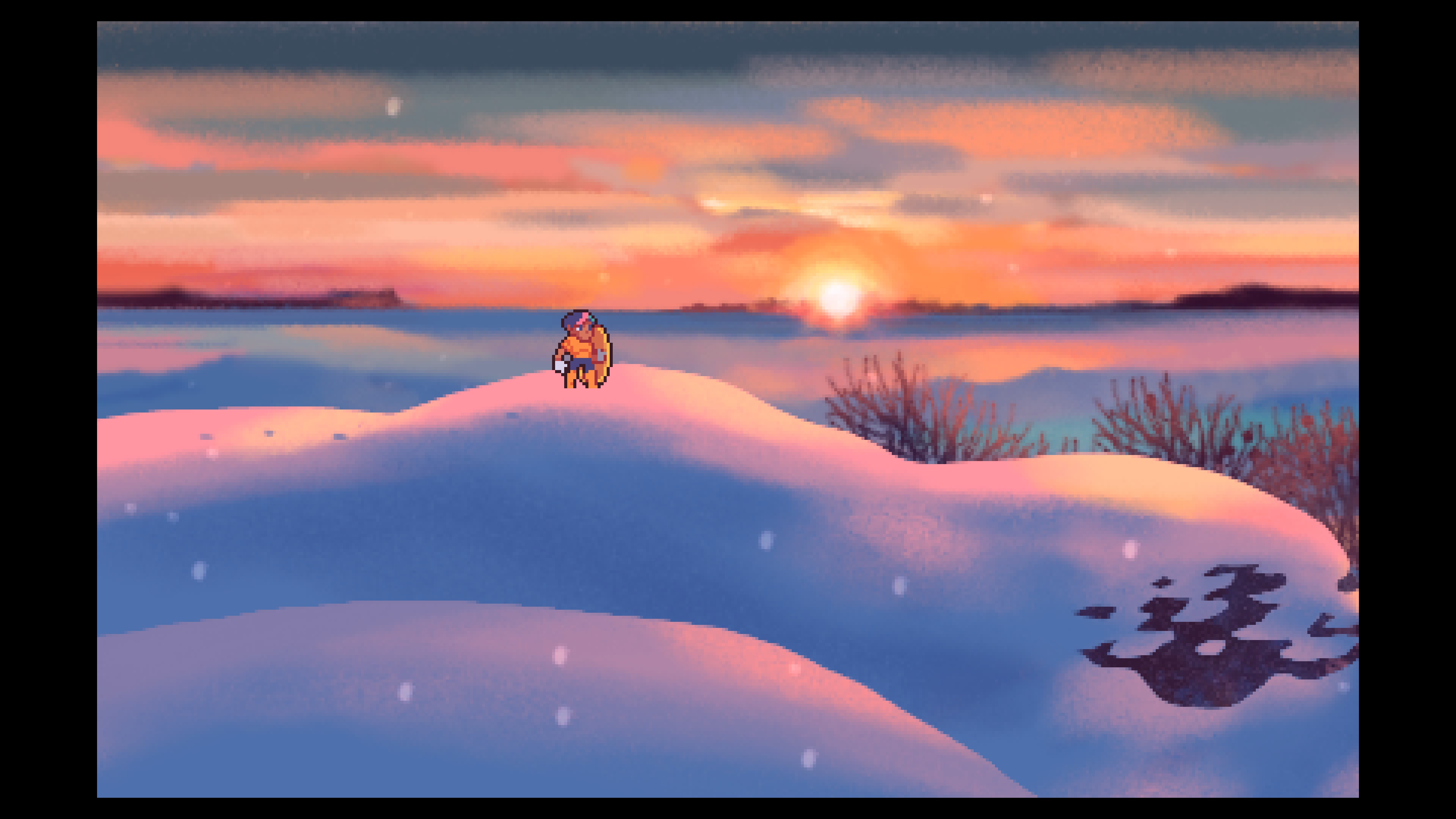
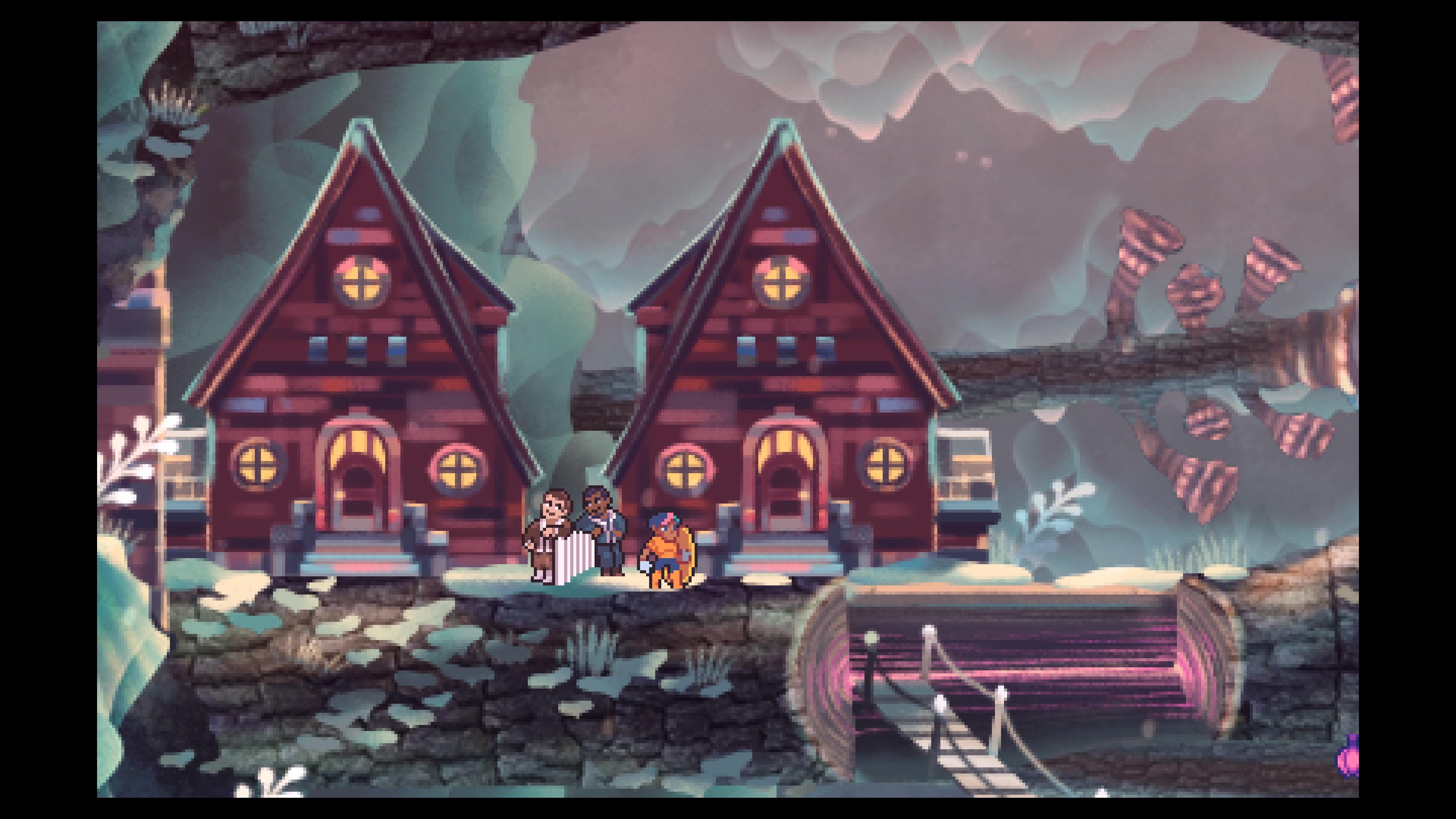
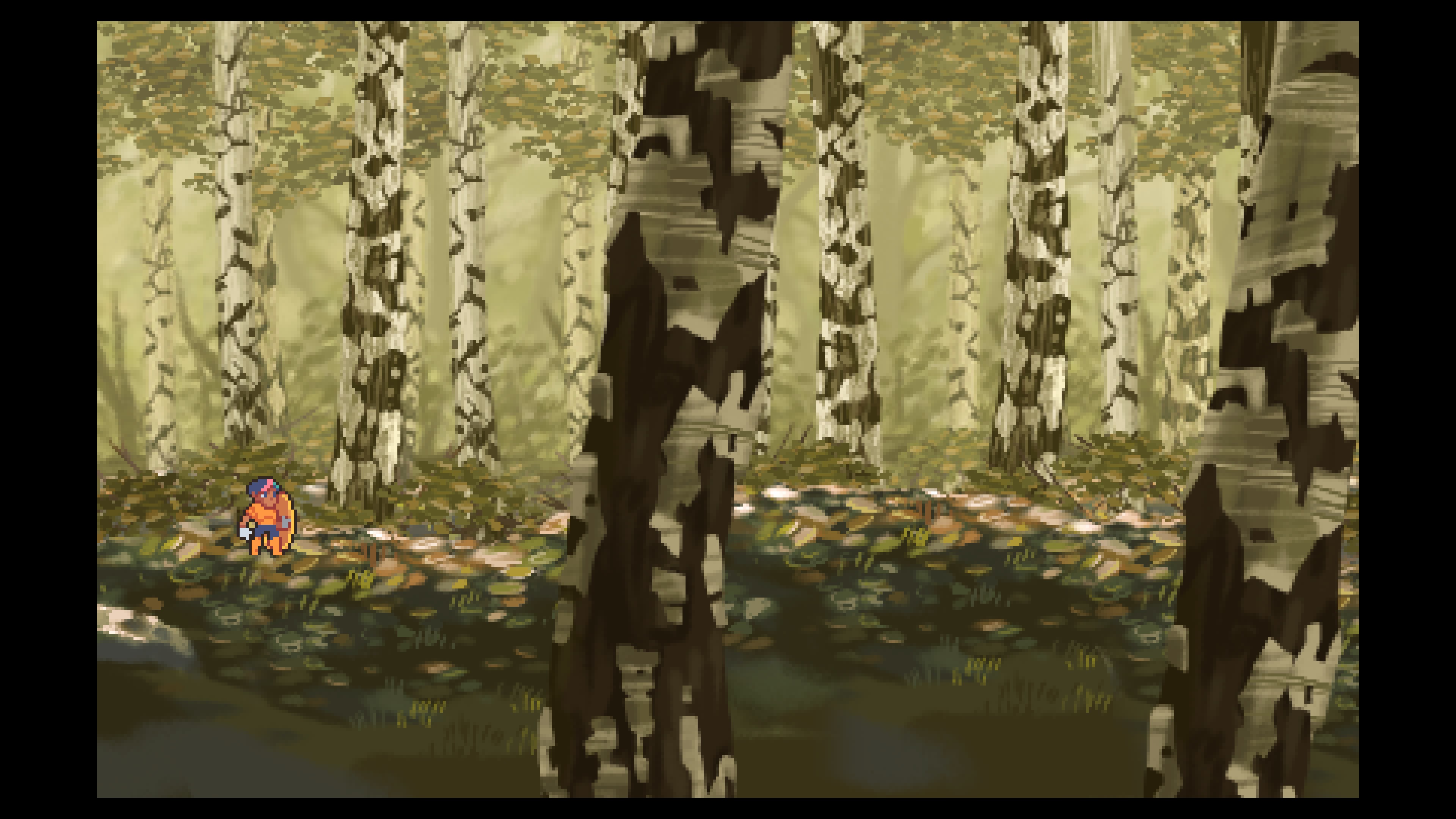
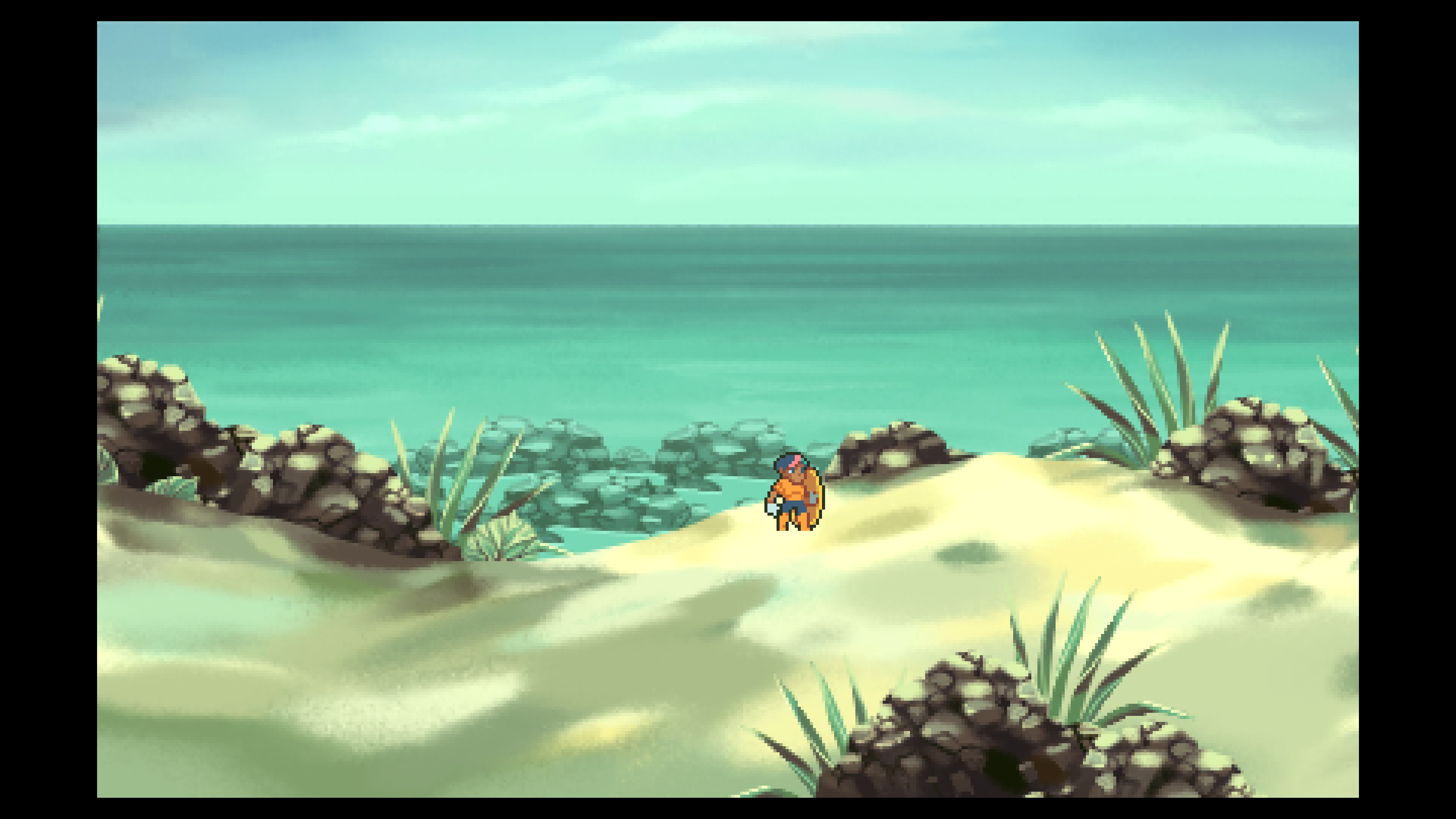
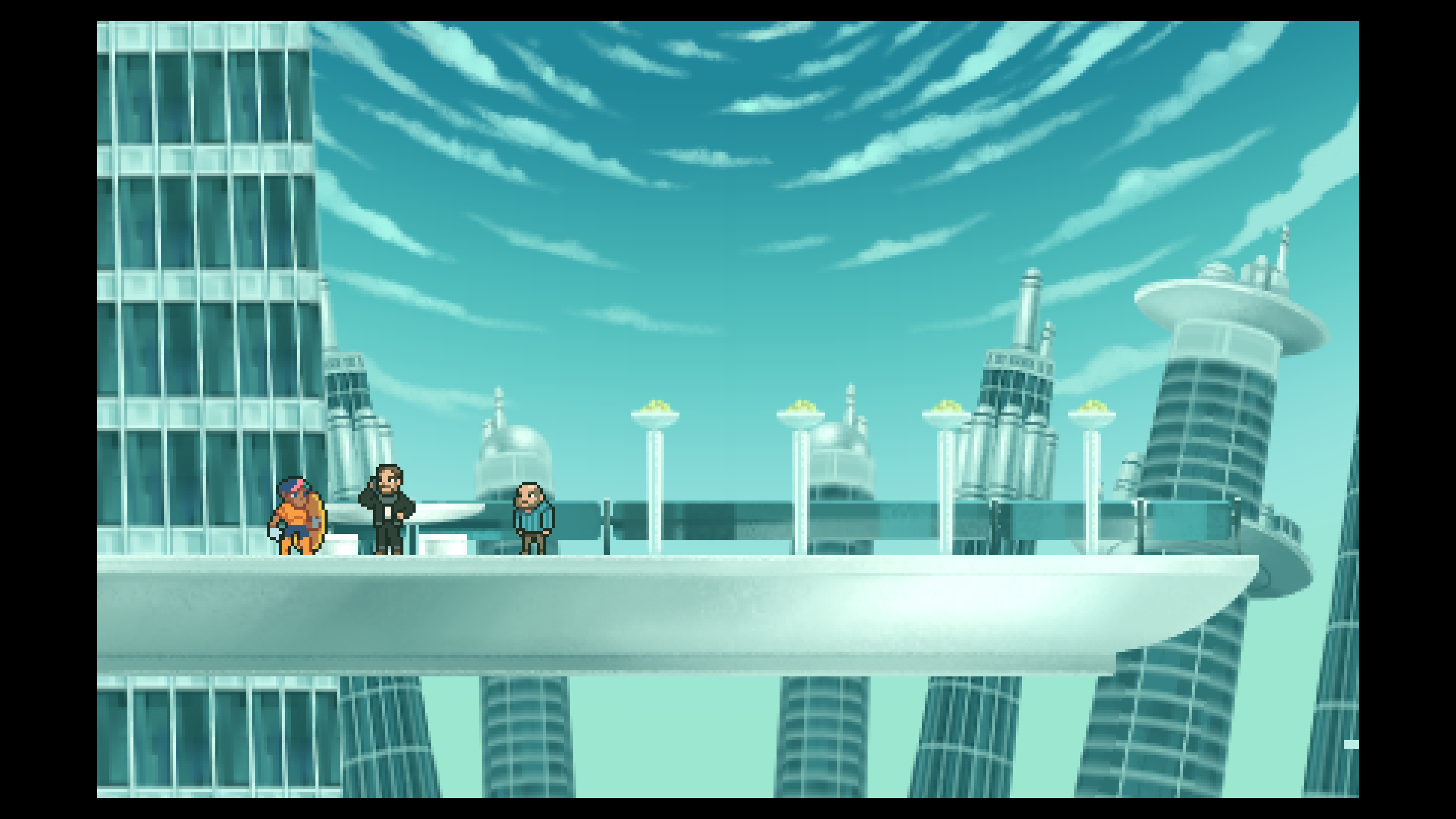
A special mention for Riverton, home of that bridge in the third pic, one of the most picturesque villages I've seen in a video game:
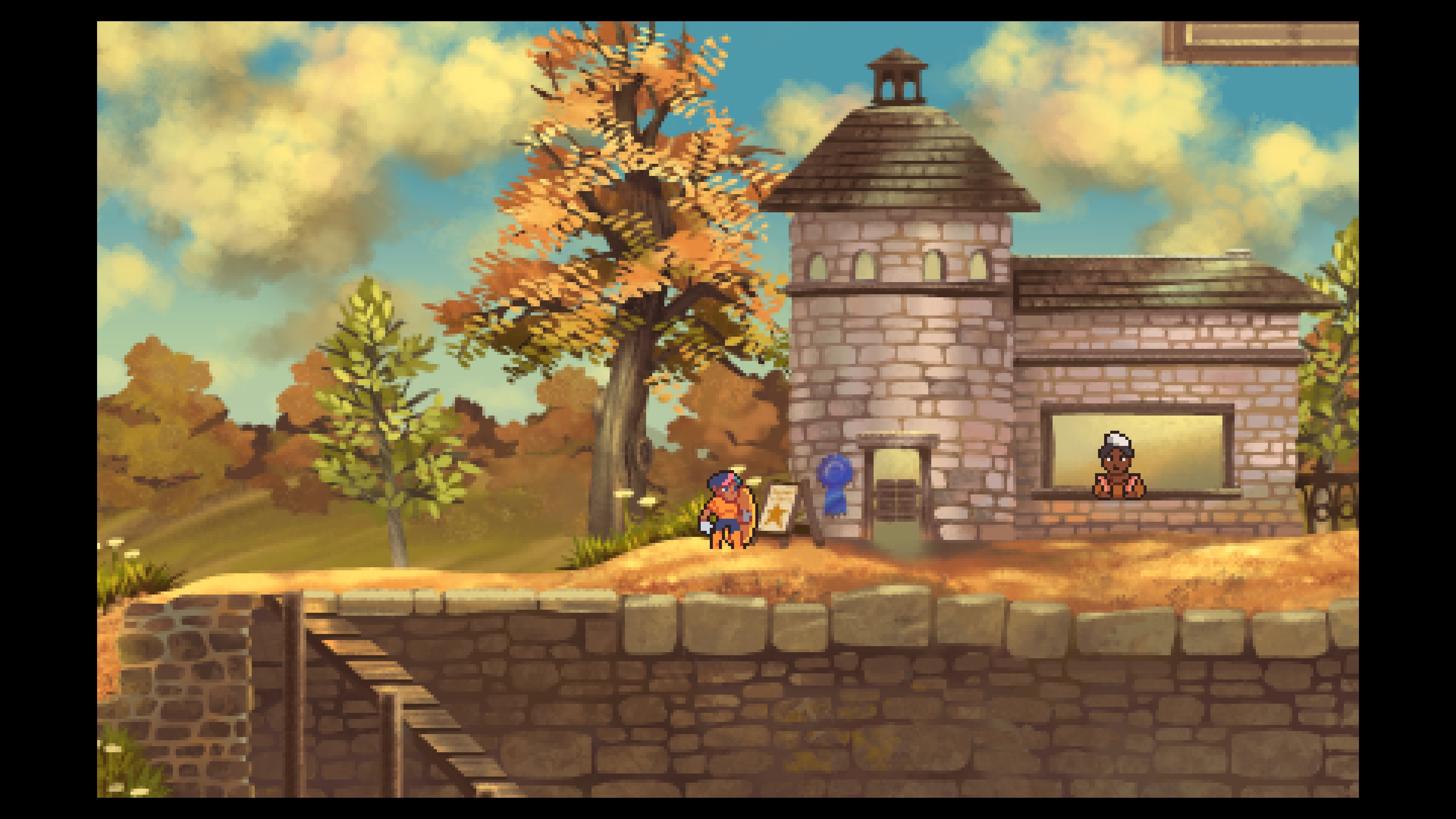
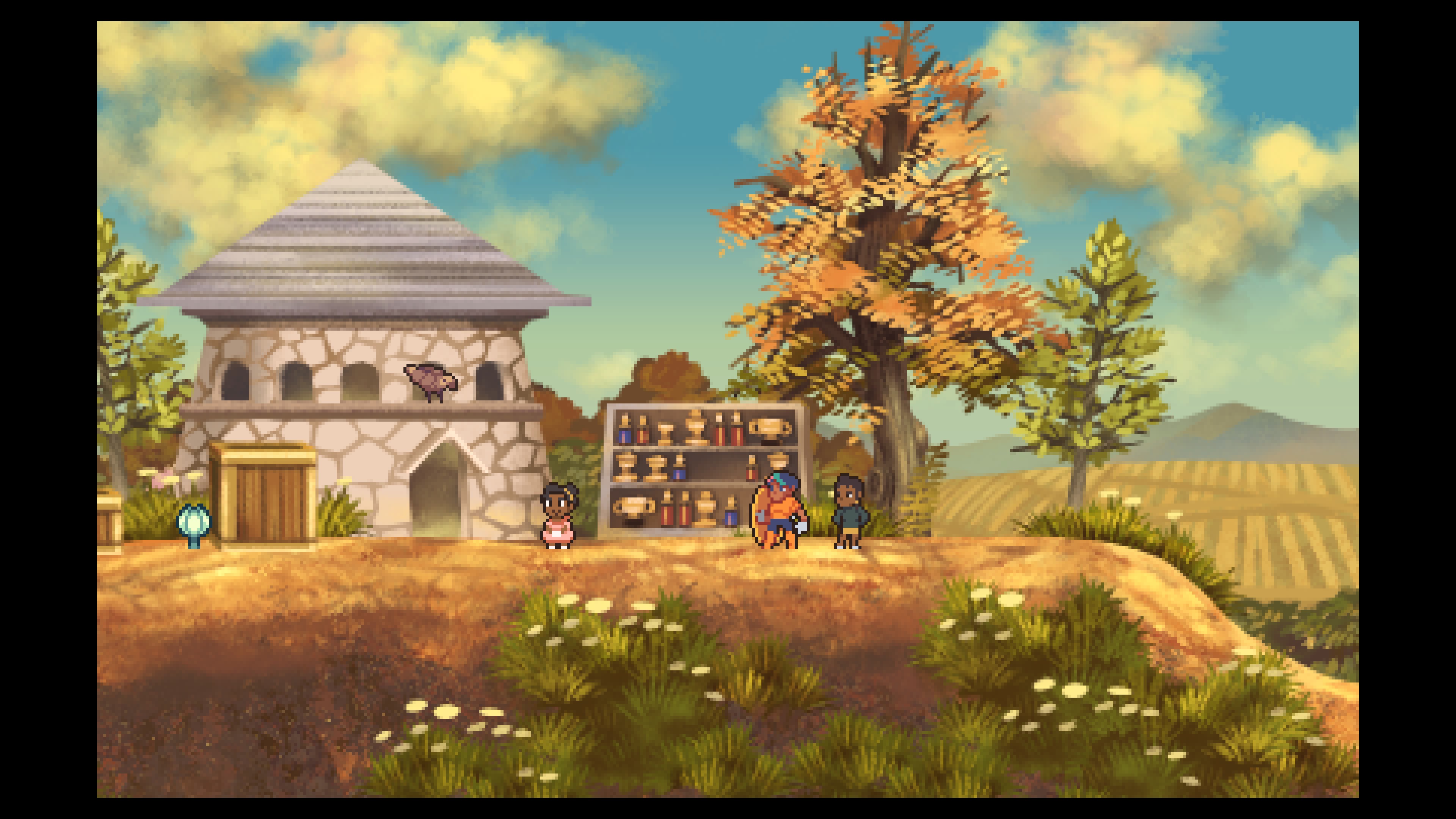
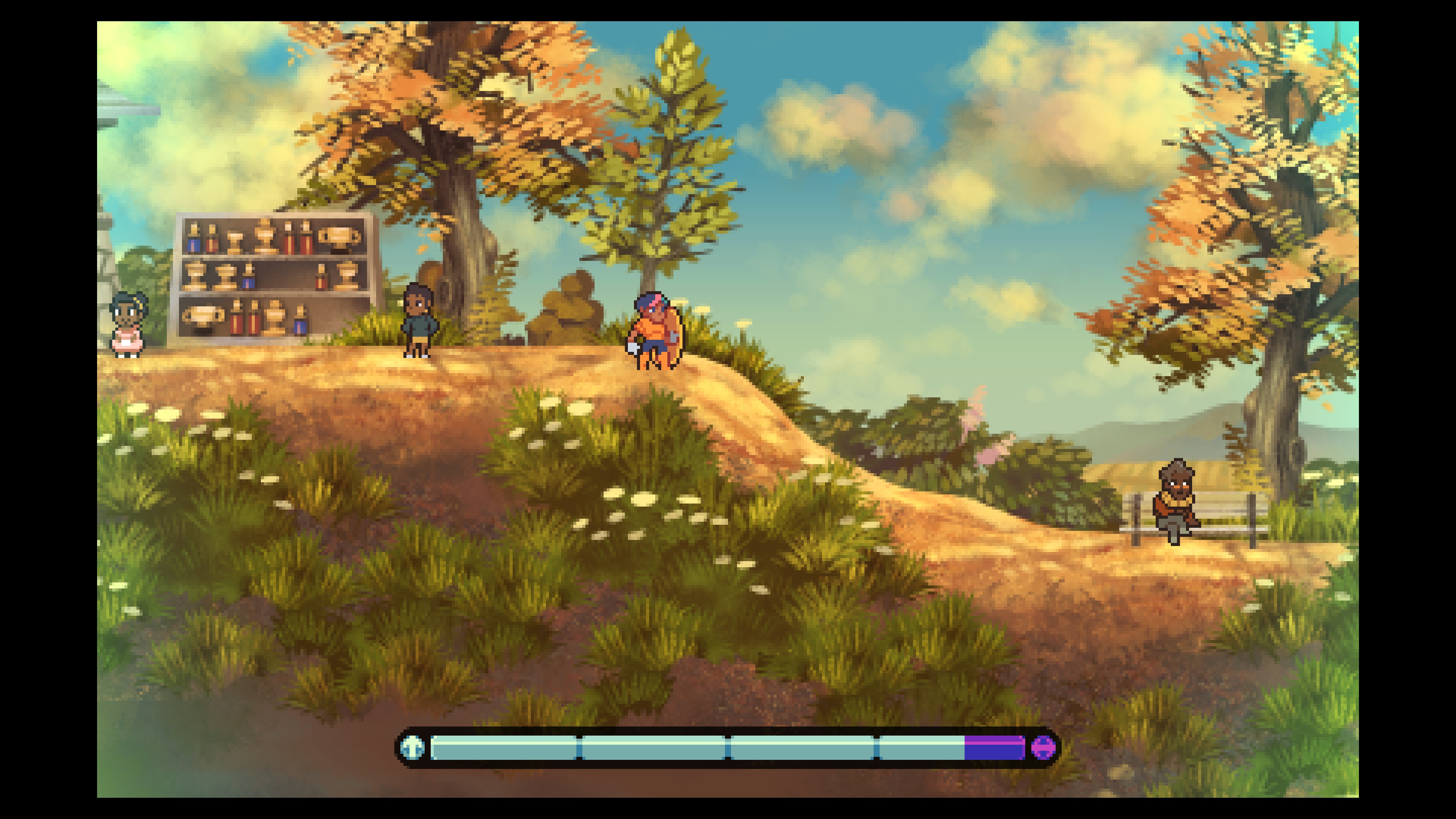
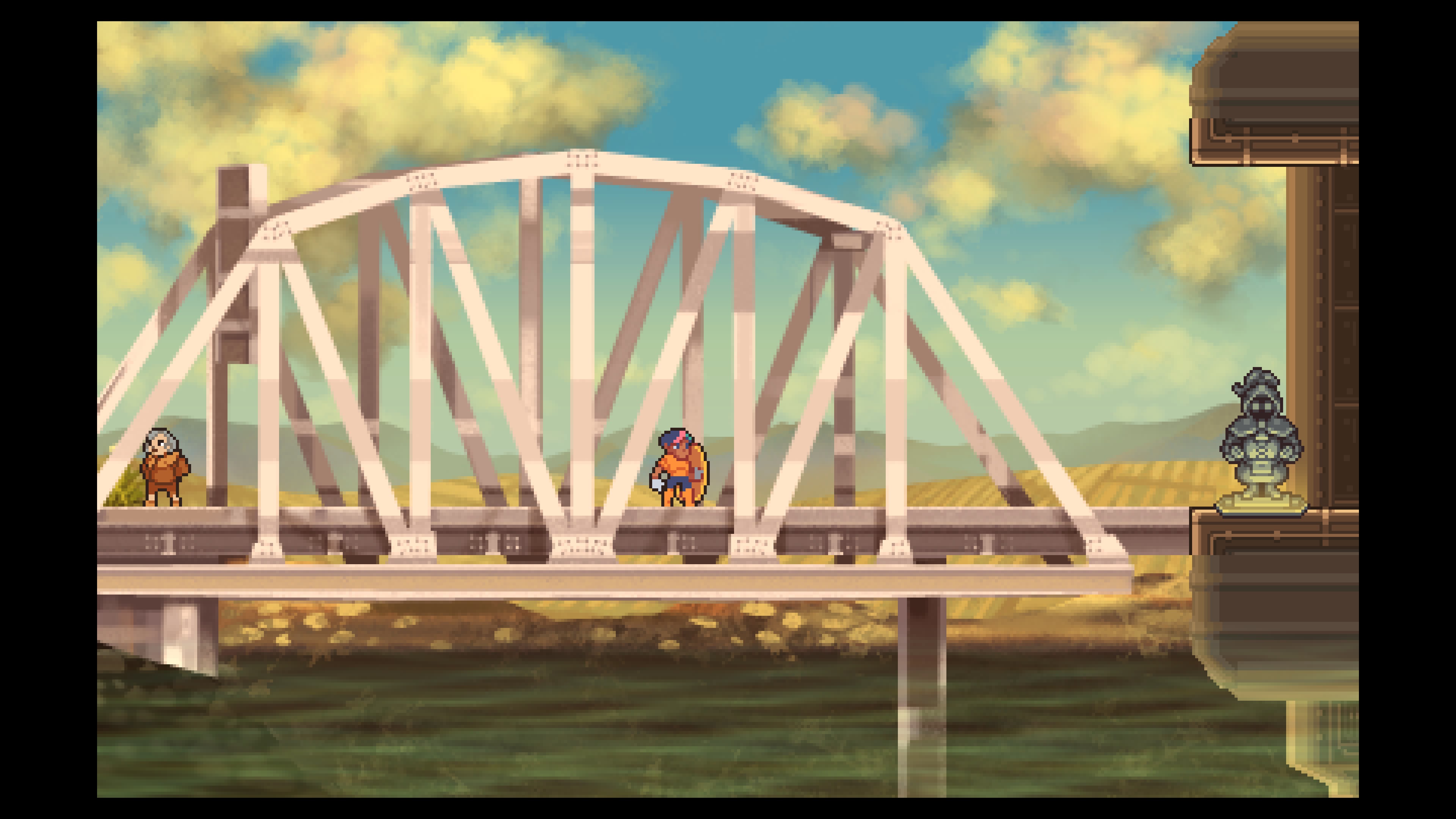
But there's another brand of visual distinction at work, and that's in the people populating the world. Name another game that has a heroine who looks like this:
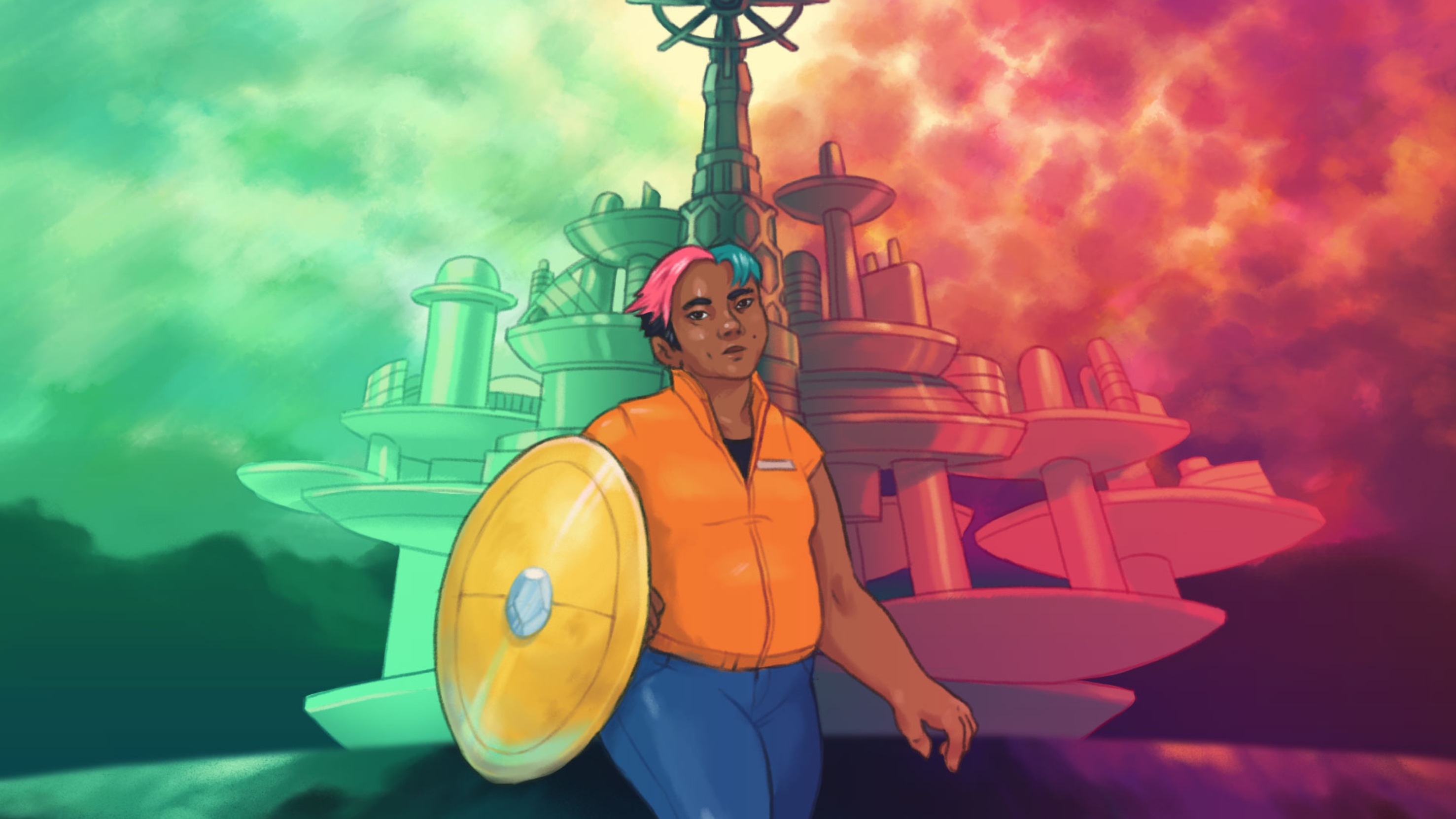
Then there are the NPCs:
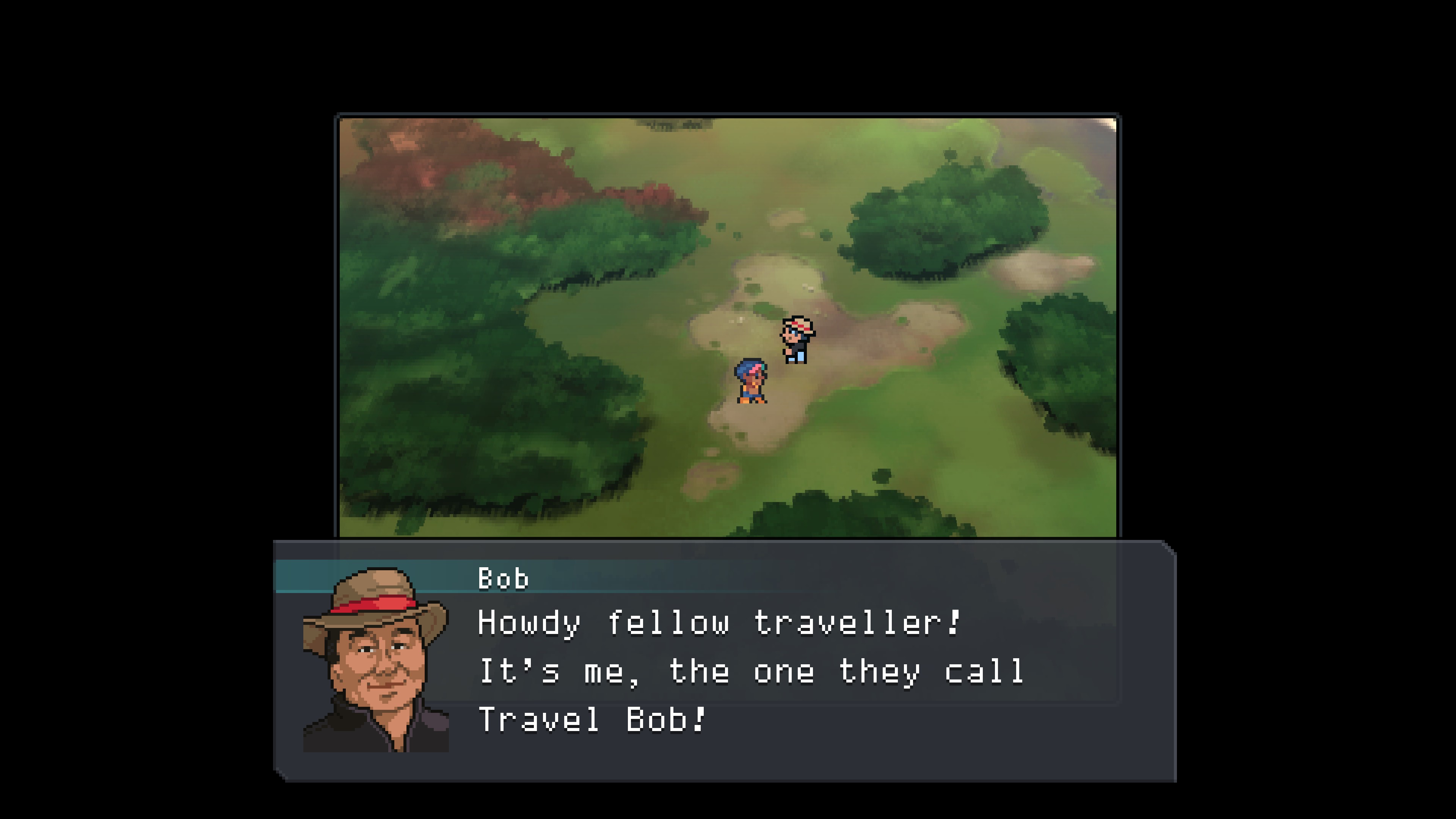
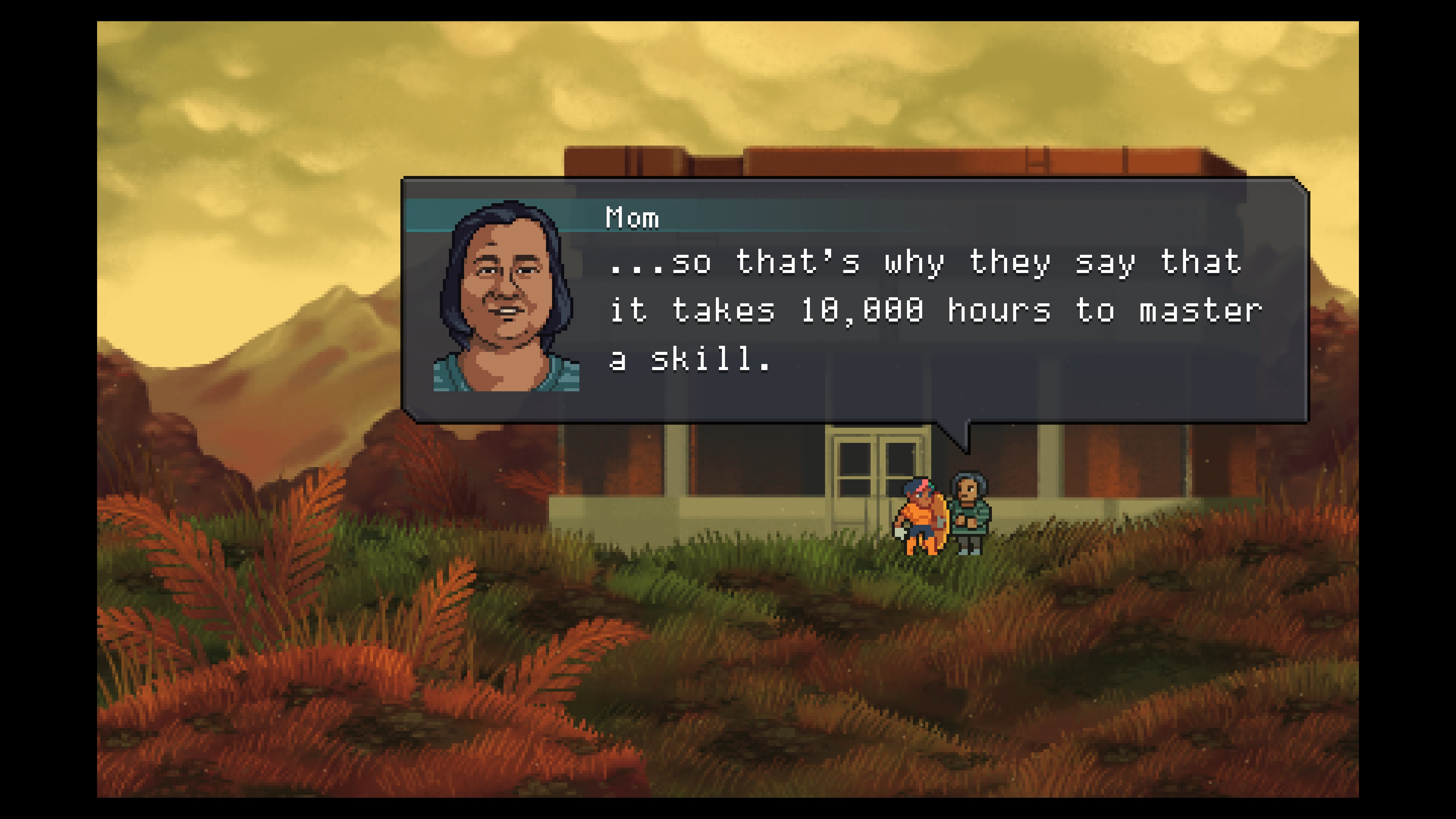
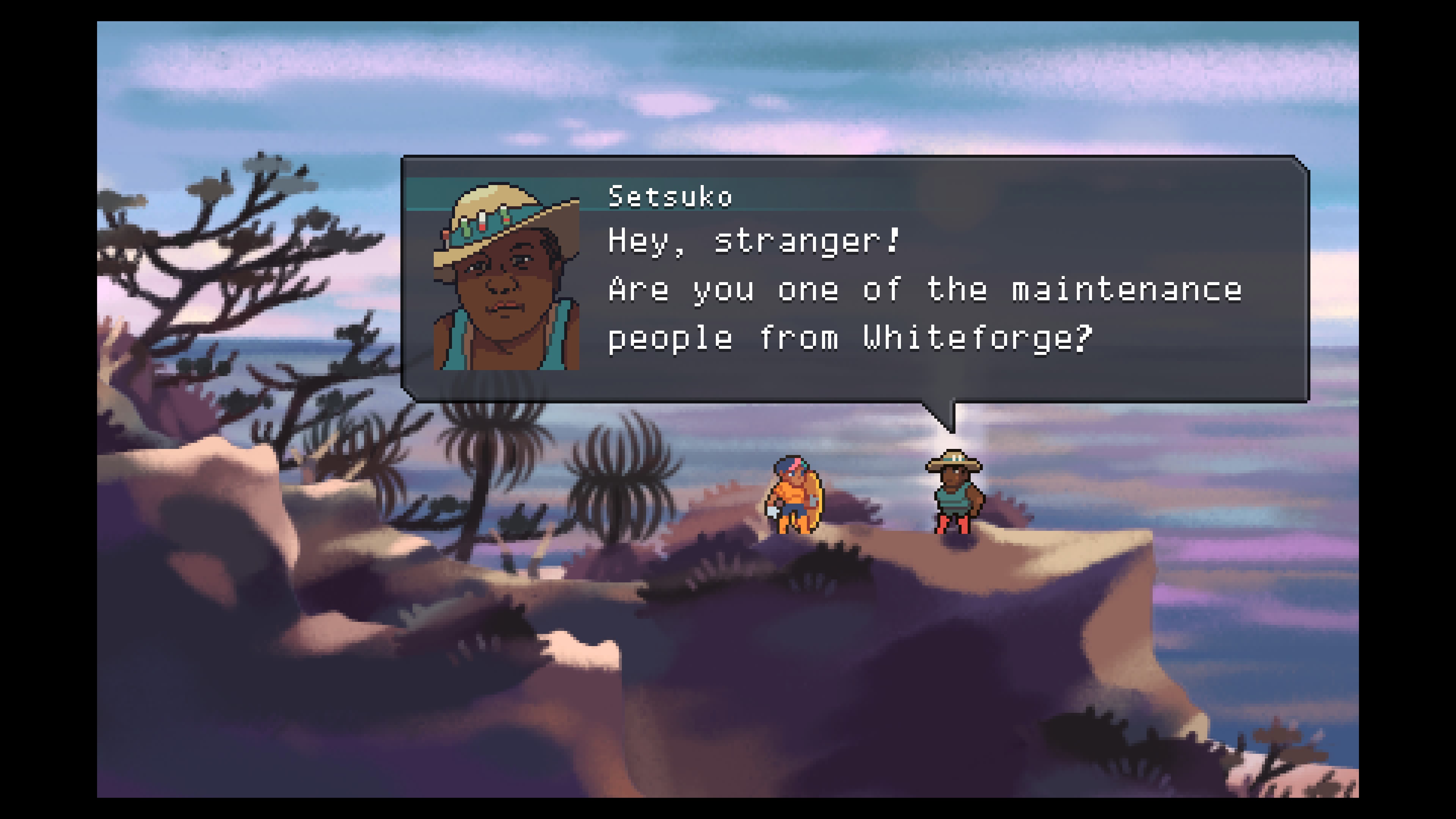
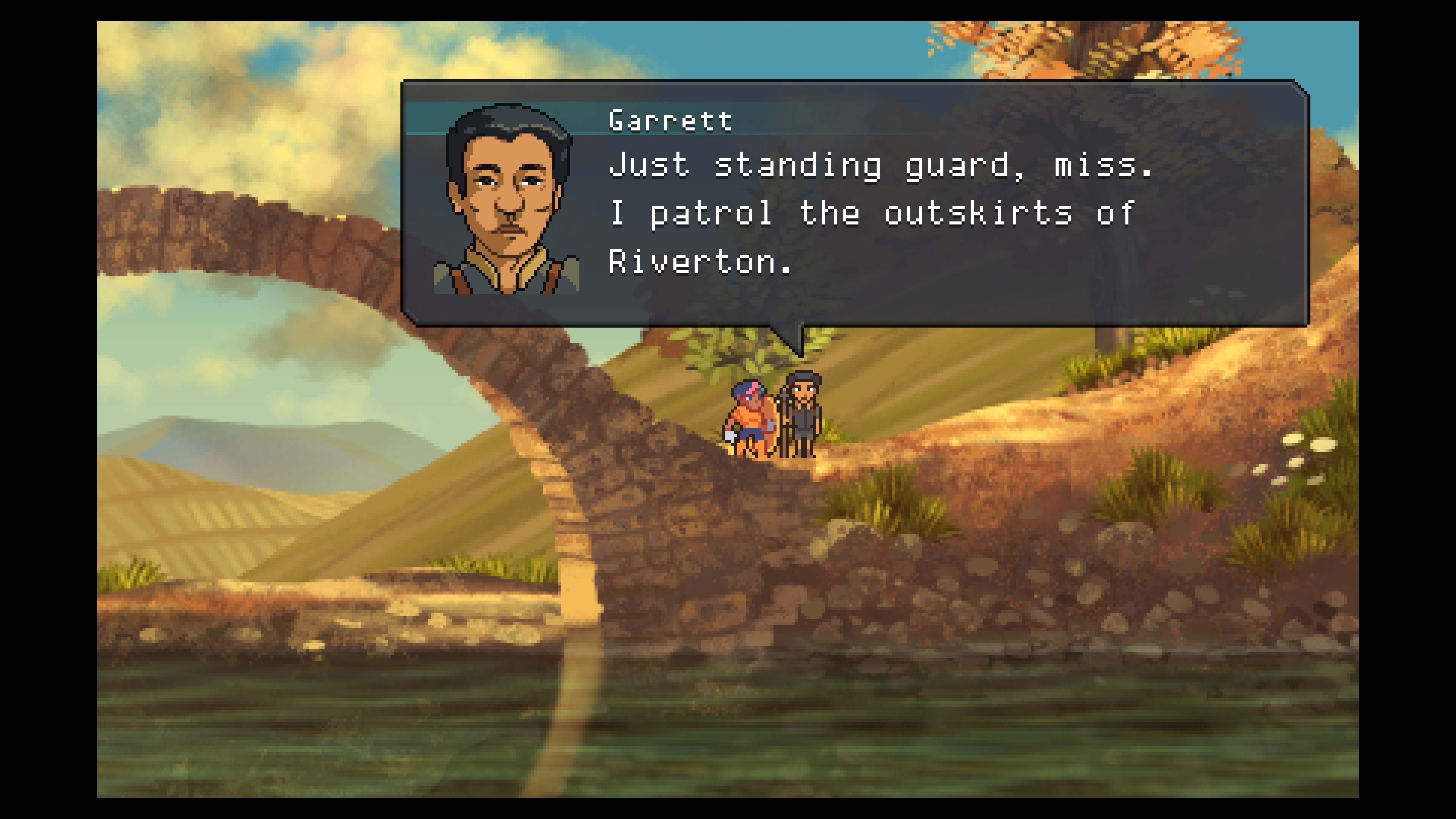
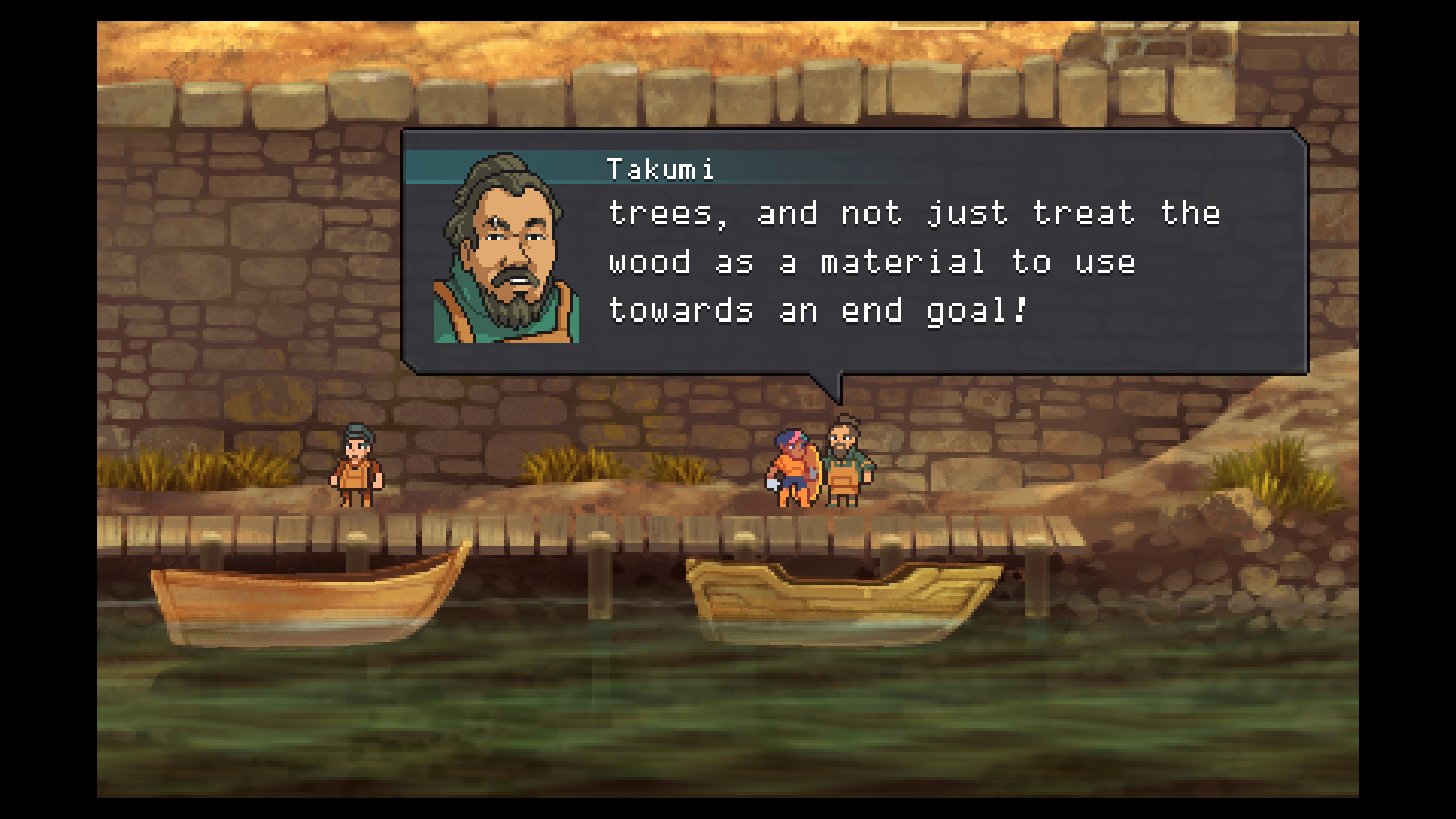
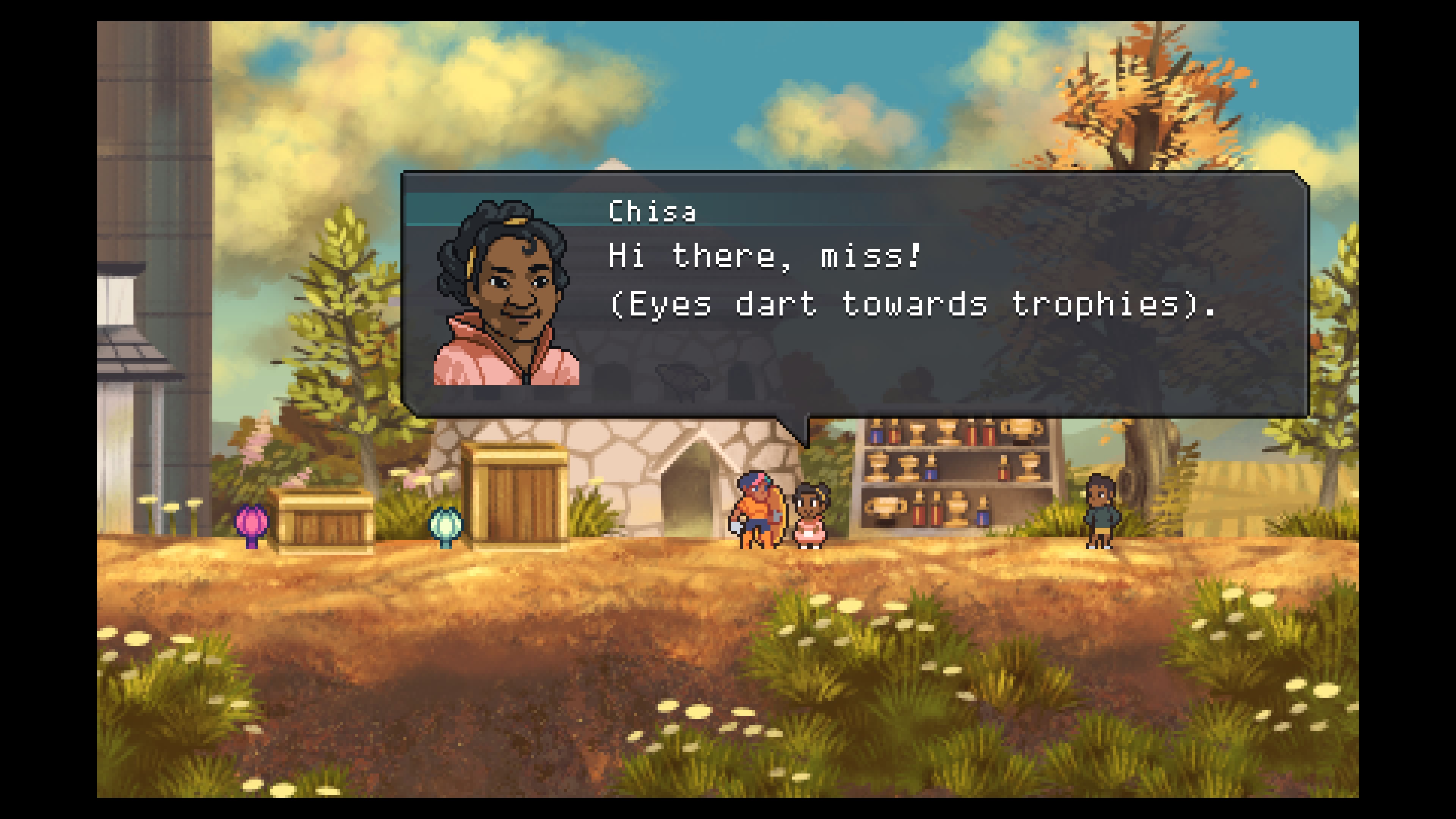
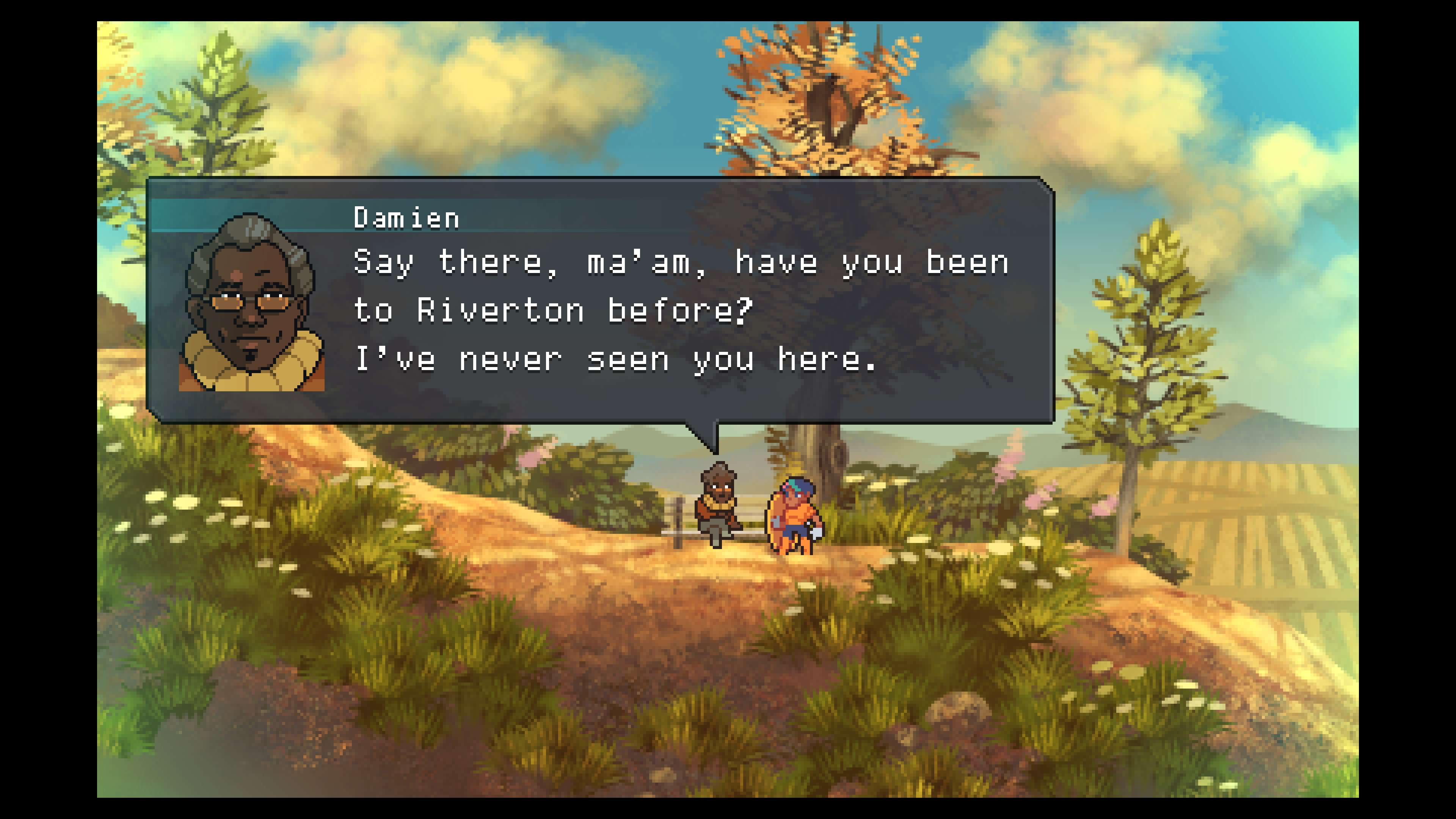
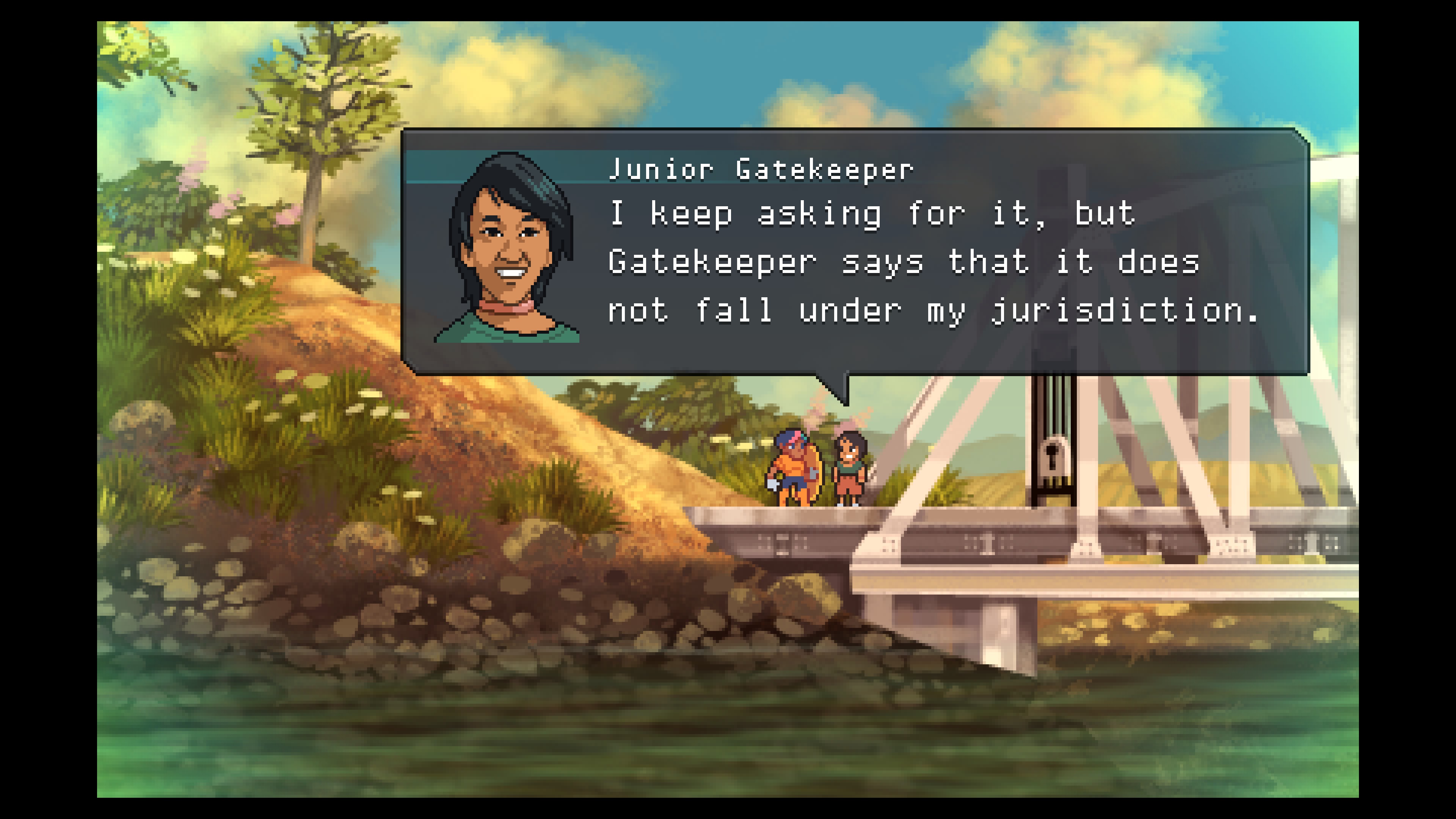
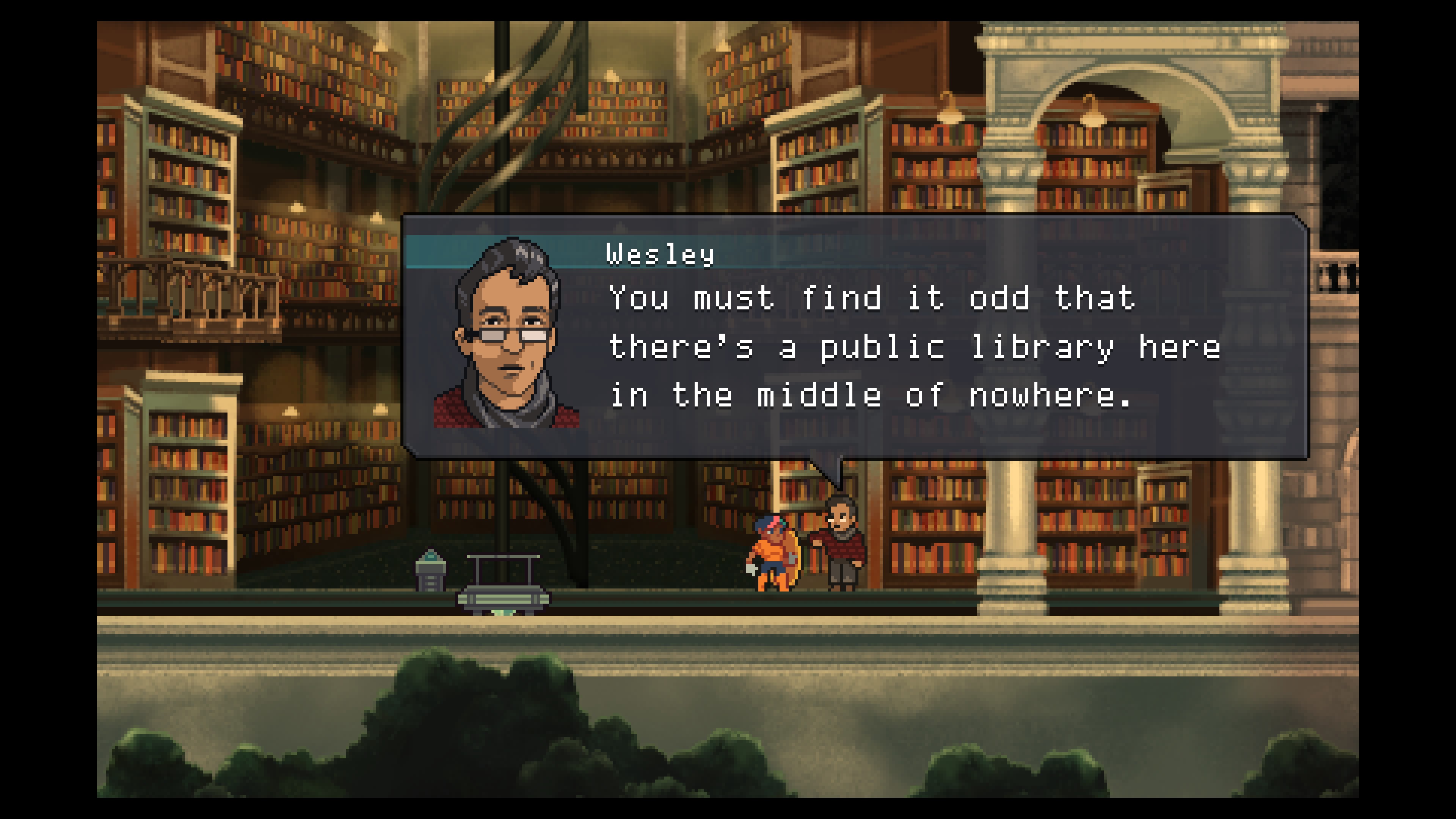
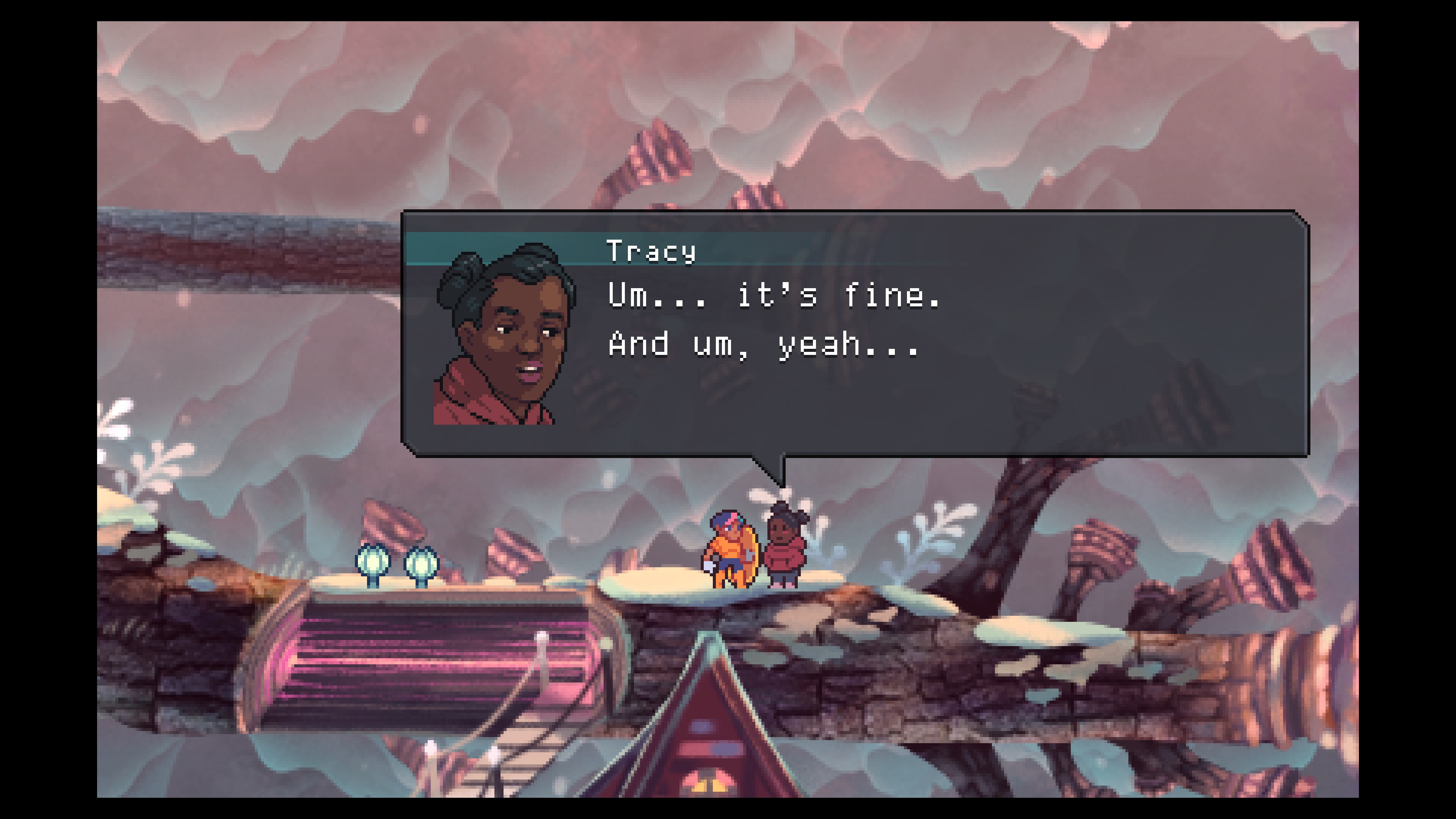
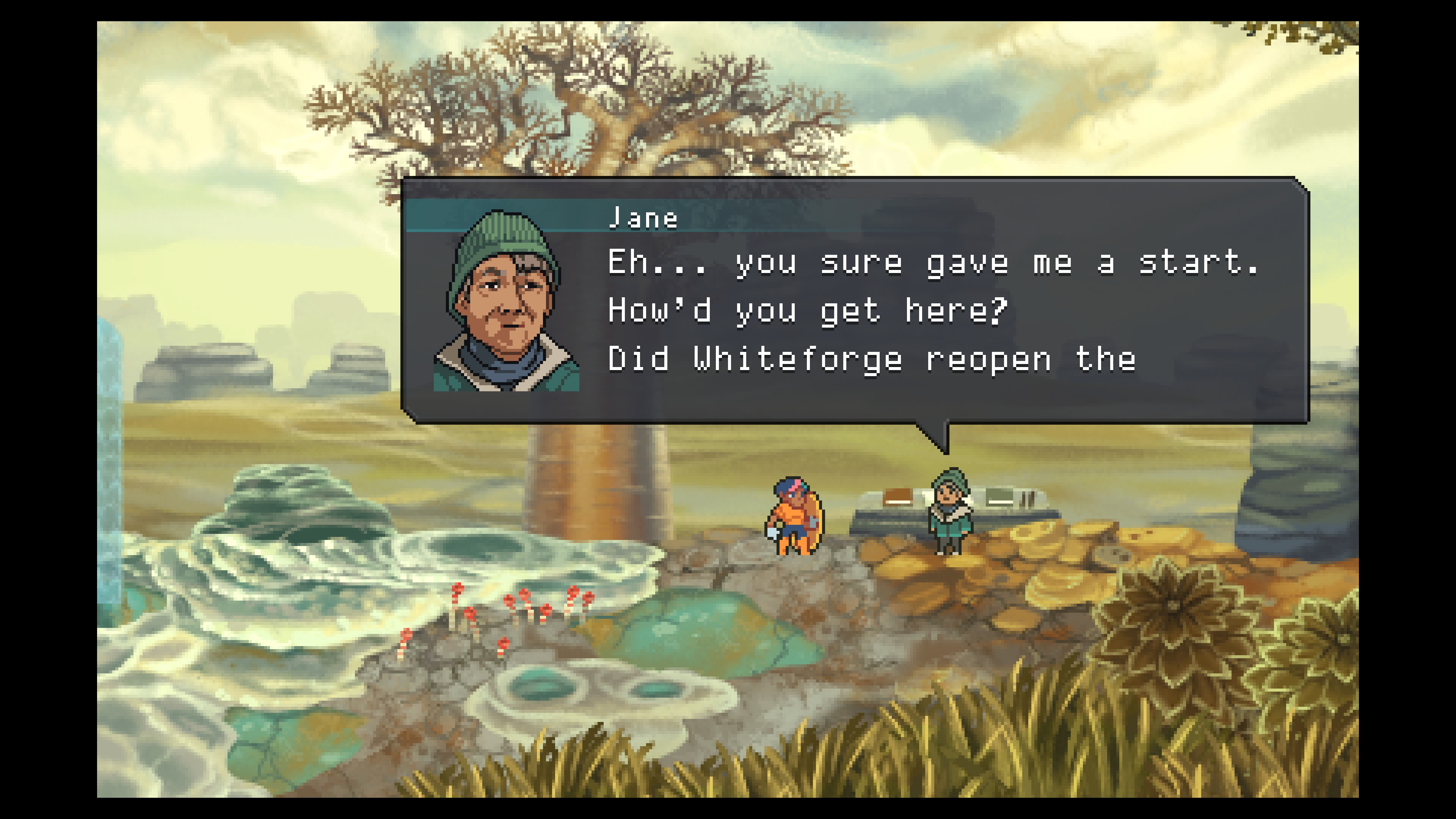
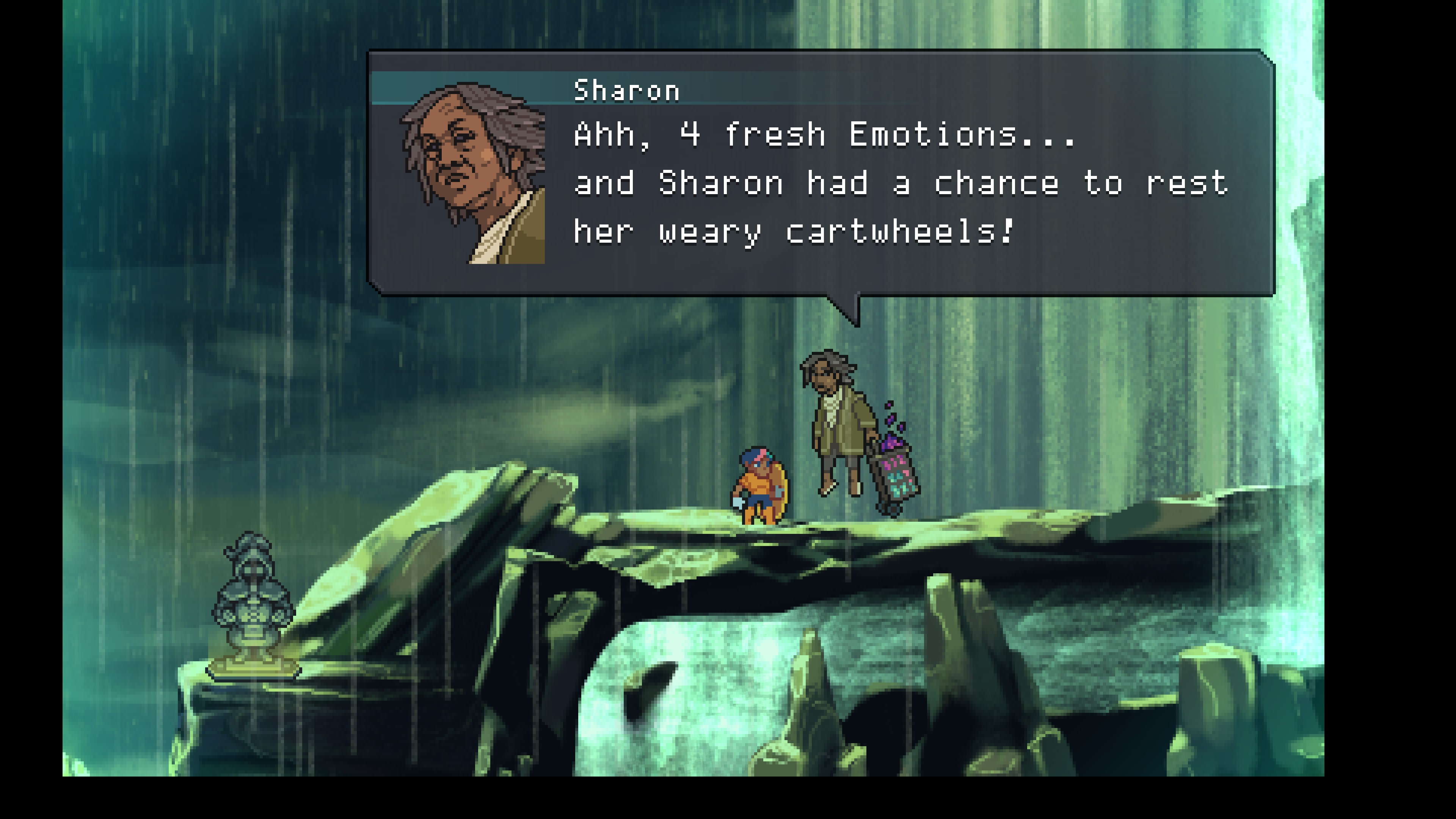
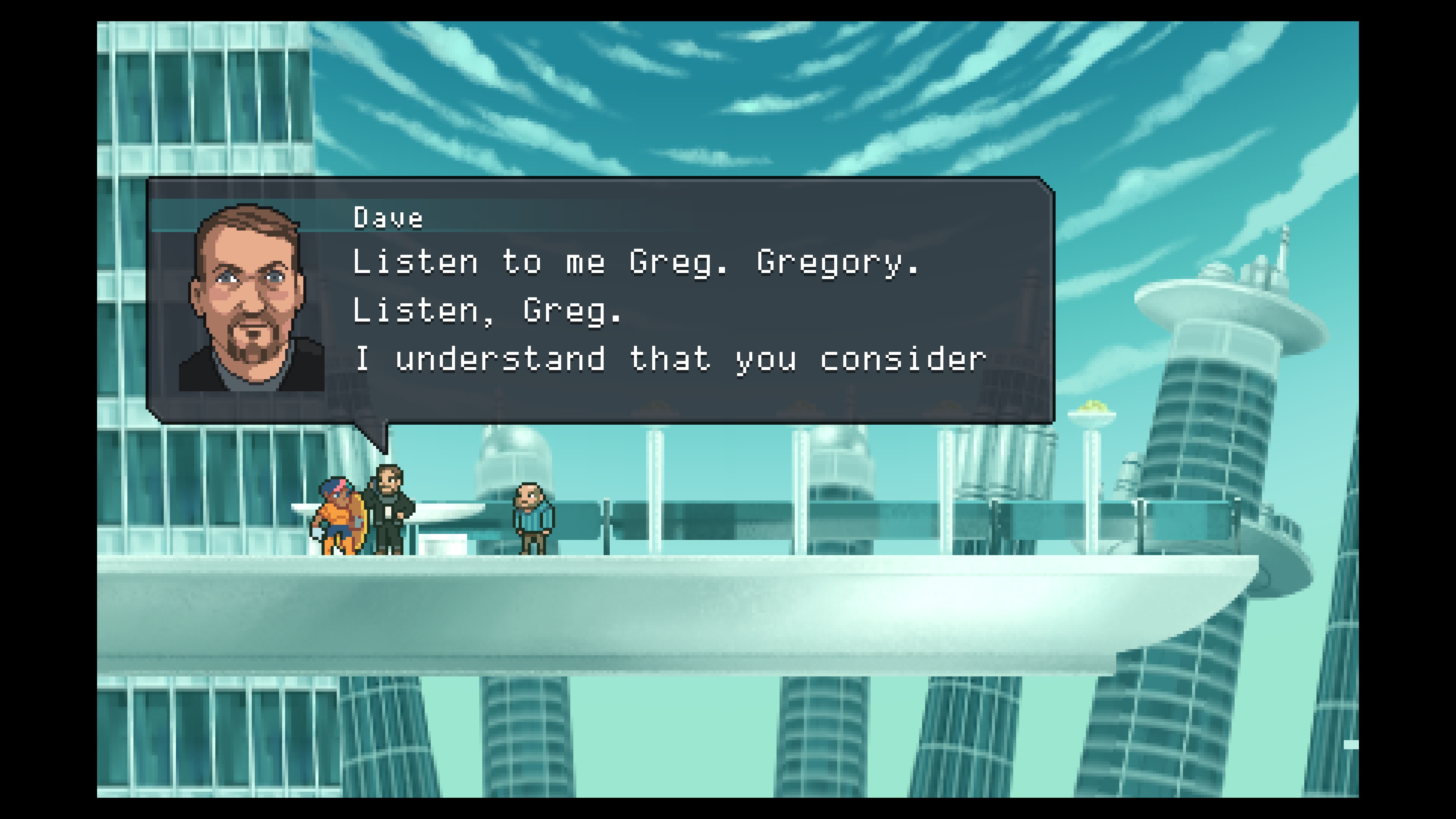
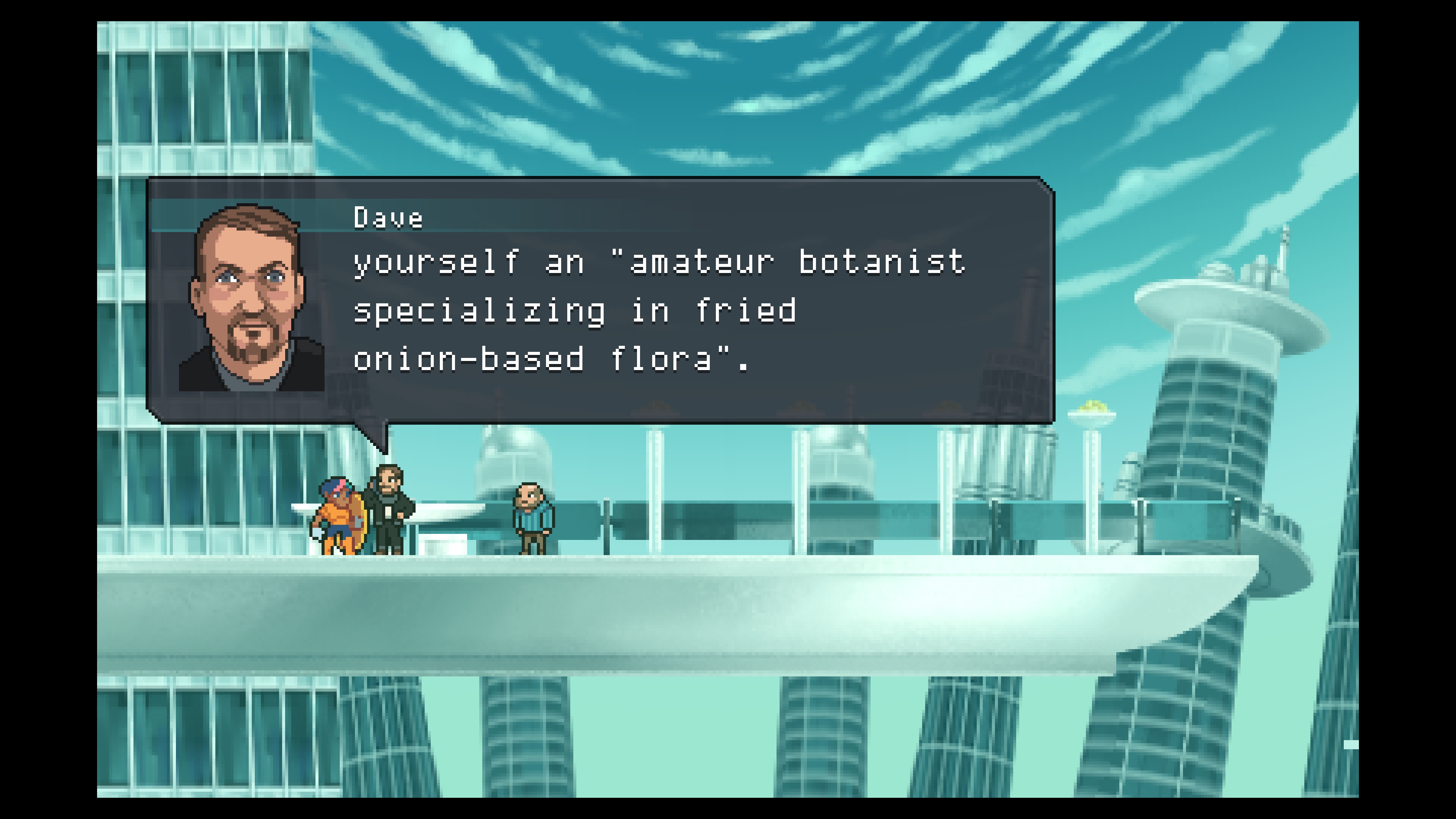
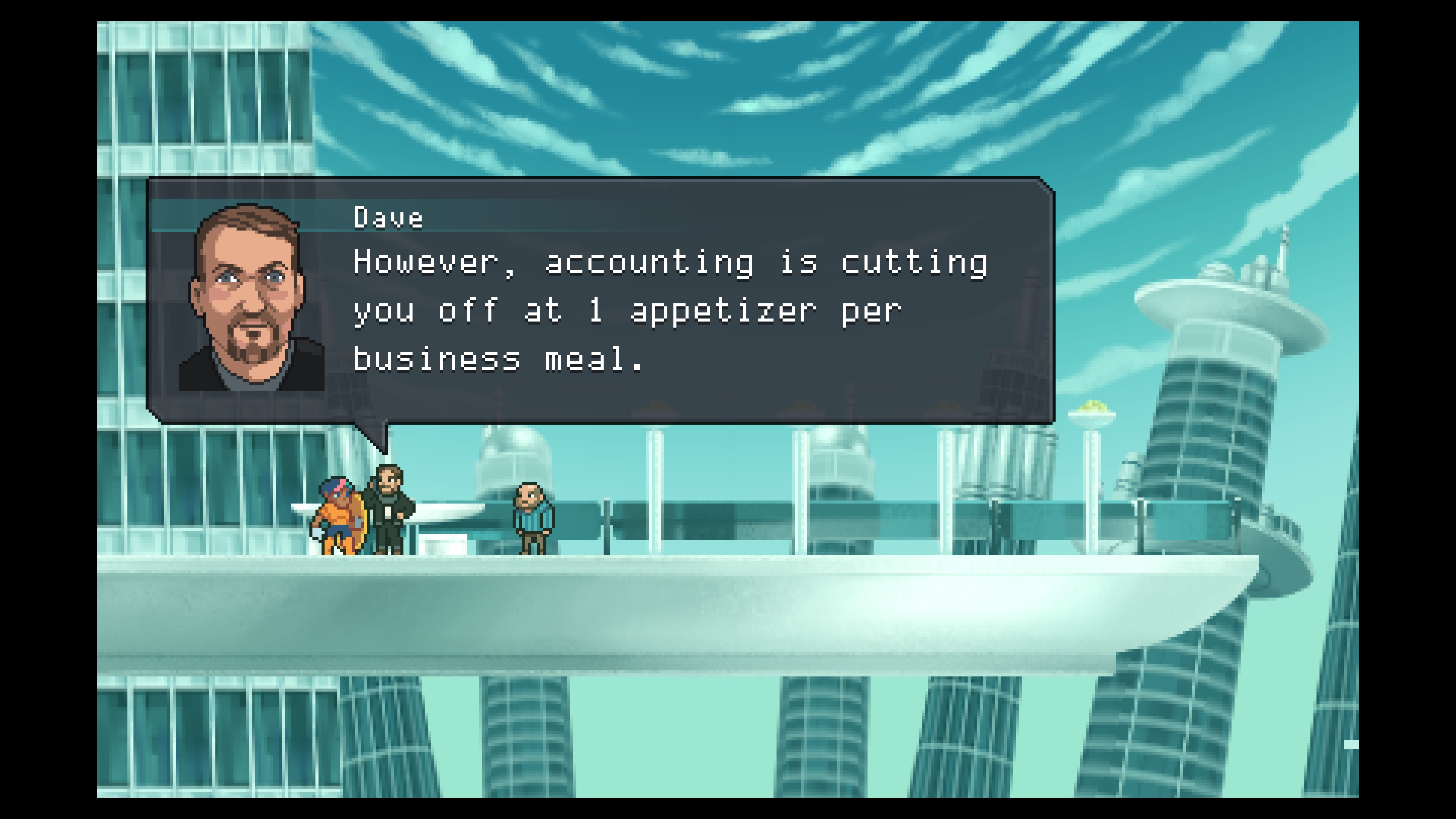
It's a much wider cross-section, in race, body type, and age, of unglamorized everyday people, and that's not something you see much in media in general, much less video games.
2. The gameplay! The gameplay, and game world itself, hinges on the interplay between the world's foundational powers of Light and Dark energy, characterized by green and purple glows, respectively, with Light associated with vertical movement and Dark with the horizontal. (You can think of them as more colorful analogs of yang and yin.) The main setting is Whiteforge City, which prides itself on harnessing Light Energy to create staggering technological advances and a soaring metropolis. Your refreshingly butch avatar is Aliph, a rookie power plant technician who's taken on her new career just when something seems to be going wrong with the plants.
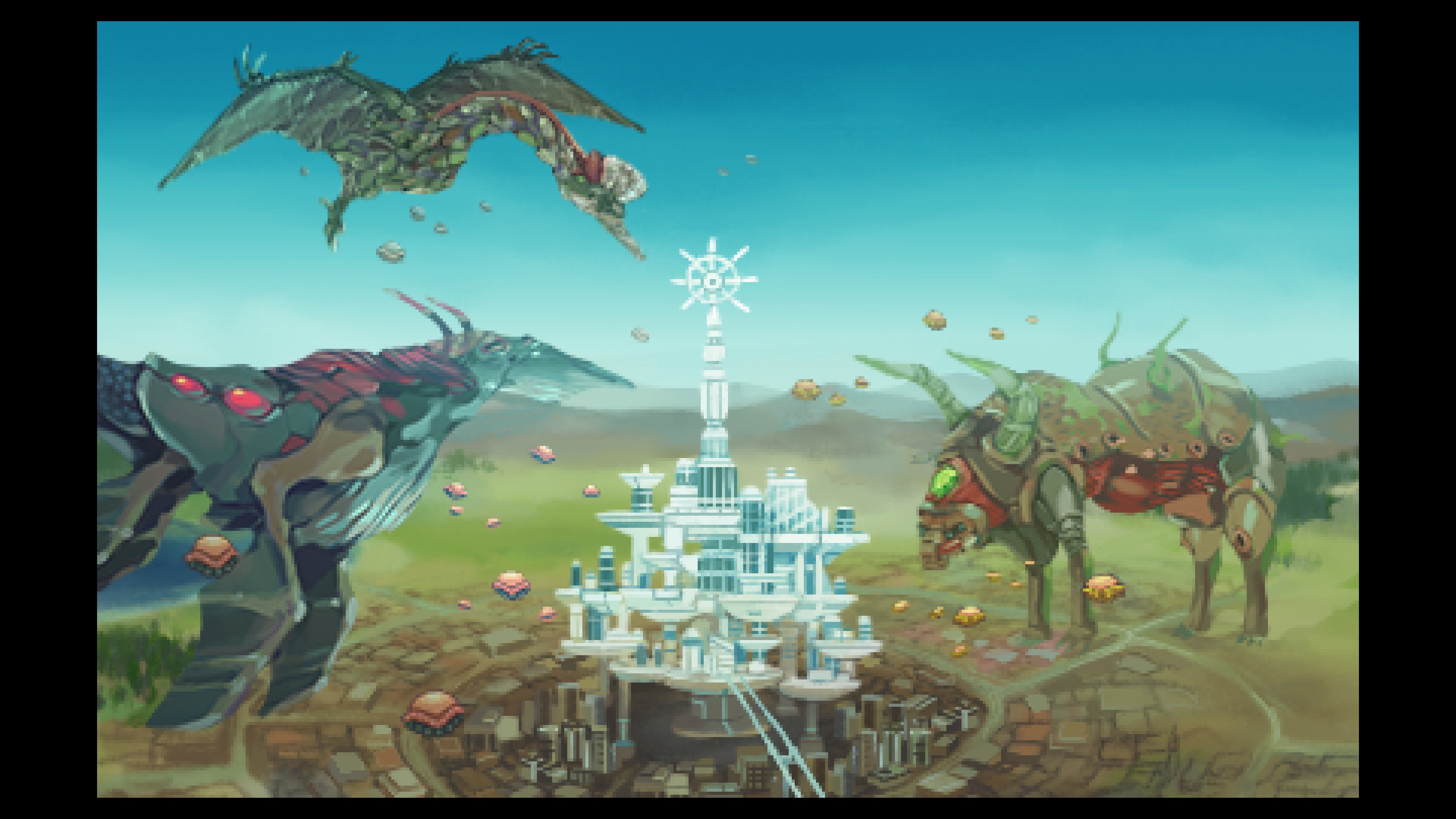
You can probably guess where this is going from the synopsis, particularly when very obvious FF7 Weapon analogs start showing up, but Even the Ocean takes a unique approach to exploring the scenario, at least. First, there is no combat whatsoever. When apparent enemies do appear, Aliph and her fellow technicians note that they're not monster hunters and (in a pointed contrast to gaming convention, where nearly every job is inevitably boiled down to a combat-ready spec set) that their professions in no way equip them for fighting.
Your charge instead is just to make your way through to the repair sites. Colliding with various obstacles within the awry plants will imbue you with increased Light or Dark energy. Too much of either is fatal to Aliph. High levels of either, however, do have benefits: a great deal of Light Energy allows Aliph to jump higher, whereas a higher dose of Dark Energy allows Aliph to move more quickly and jump longer distances. Your job, then, is to juggle what is effectively a health continuum (as opposed to a health bar) to avoid obstacles and get where you have to go, leveraging the risk of traveling in a precarious state of health against the mobility boosts you need to reach your goal.
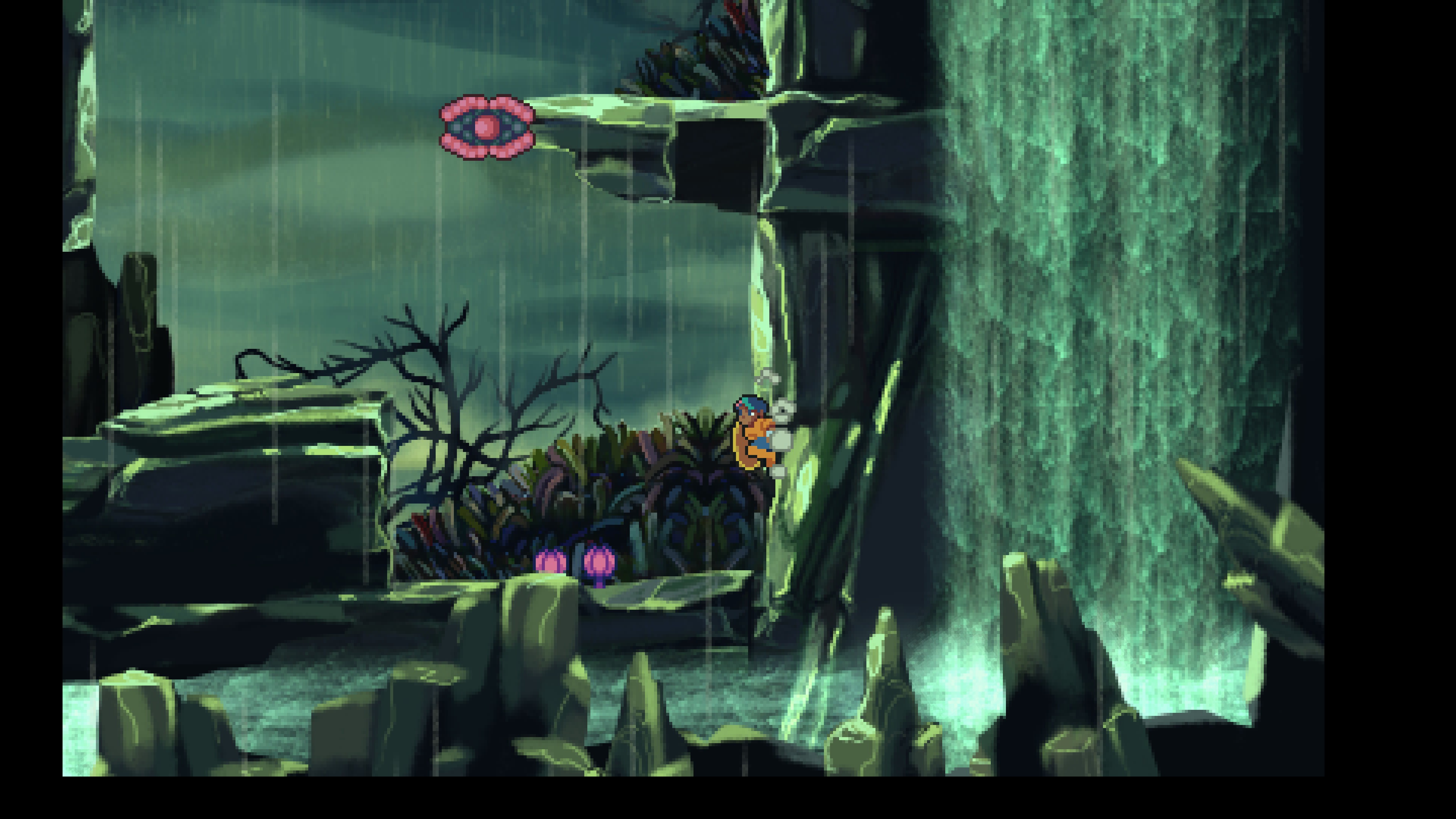
It's a puzzle platformer, and in addition to the Light/Dark jump/speed buffs, you'll continually explore other new abilities: the shield Aliph salvages from the exosuit that's busted in her opening mission, for example, can be used to deflect energy (for protection or strategic deflection), to sail along on gusts of wind, to grind on rails, or to skip over water or energy beams. Each area seems to introduce a new wrinkle, a new method of movement, and they're all interesting and fun (though this does lead to a few sticking points later on where you're expected to recall how certain mechanics work that you haven't encountered in a few hours). The sheer variety in your moveset combines with the brevity of individual screens - puzzles are thoughtful but well-paced and saves ample - and the focus on the motion of the obstacles to give the game a welcome zippiness, a sense of forward movement, that makes Even the Ocean feel very dynamic, particularly for a puzzle-centric outing. It's to EtO's great credit that even though the title is completely devoid of combat, I never felt starved for action. That's a feat.
It's well-thought-out and fun, and there's one accomplishment worthy of particular note: the controls are great. Controls are typically highlighted when they're bad. I hate wall jumping. It will get me to turn off a game faster than any. I loved the wall jumping in Even the Ocean. It is the wall jumping ideal. It's what it should feel like. The devs were obviously in this project to tell a certain story (more in a moment), but there are difficult gameplay design challenges here that they absolutely nailed. It's a joy to move in this game. It's the gameplay of Super Meat Boy except not made for idiot masochists.
3. The....ENDING. Yes, this is one of those games that has...An Ending, the type where discussion of the title isn't complete without an in-depth, spoiler-filled discussion of the denouement, since it colors your whole experience. It's groundbreaking and offers a perspective not seen in games, but I wonder if it doesn't betray some of what's made Even the Ocean special before that. Endgame spoilers and discussion under the cut.
All right, so it turns out that Whiteforge's overuse of Light Energy has unbalanced the natural harmony of the earth, which seeks to rebalance itself - first, by sending the Weapons to attack Whiteforge's power plants, and then through an apocalyptic flood. Aliph drives off the Weapons by redirecting some vents in the power plants, then by unearthing some ancient bombs from a previously-demolished high-tech civilization and planting them within the Weapons to blow them up. At her moment of false-dawn triumph, though, she returns to Whiteforge to find the flood imminent and the population in panic. Finally intuiting what the real problem is, she travels to Whiteforge's power hub and reverses the city's power draw/siphoning of Light Energy. City saved, civilization sent back to a less tech-reliant but still-intact state, time for the real dawn, right?
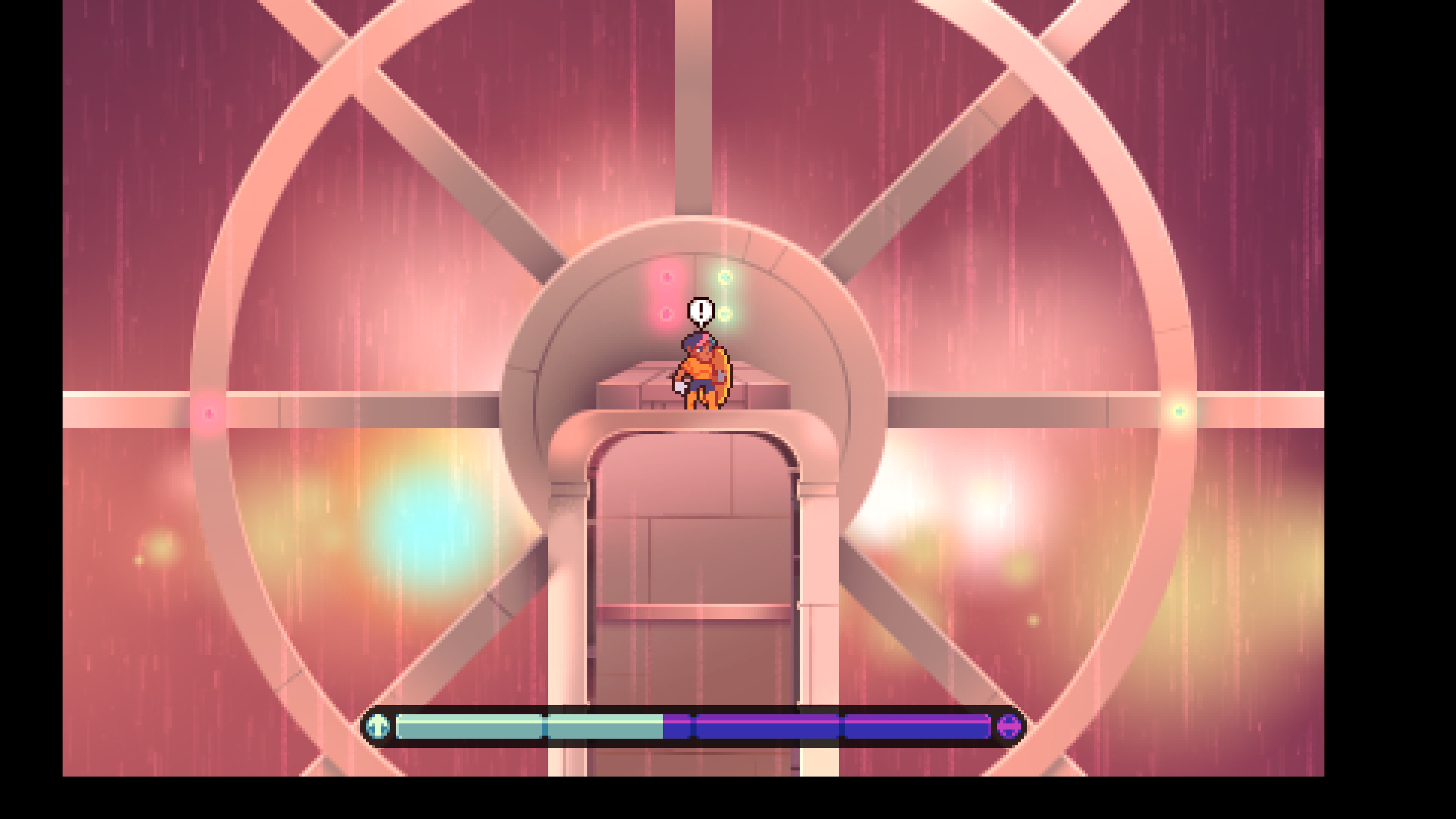
Well, no. Aliph returns home to see the flood engulfing the earth in the distance, rushing for Whiteforge. Her actions have made no difference. This reckoning concerns the course of a civilization, and the actions of one individual cannot change that. In her love interest Yara's words:
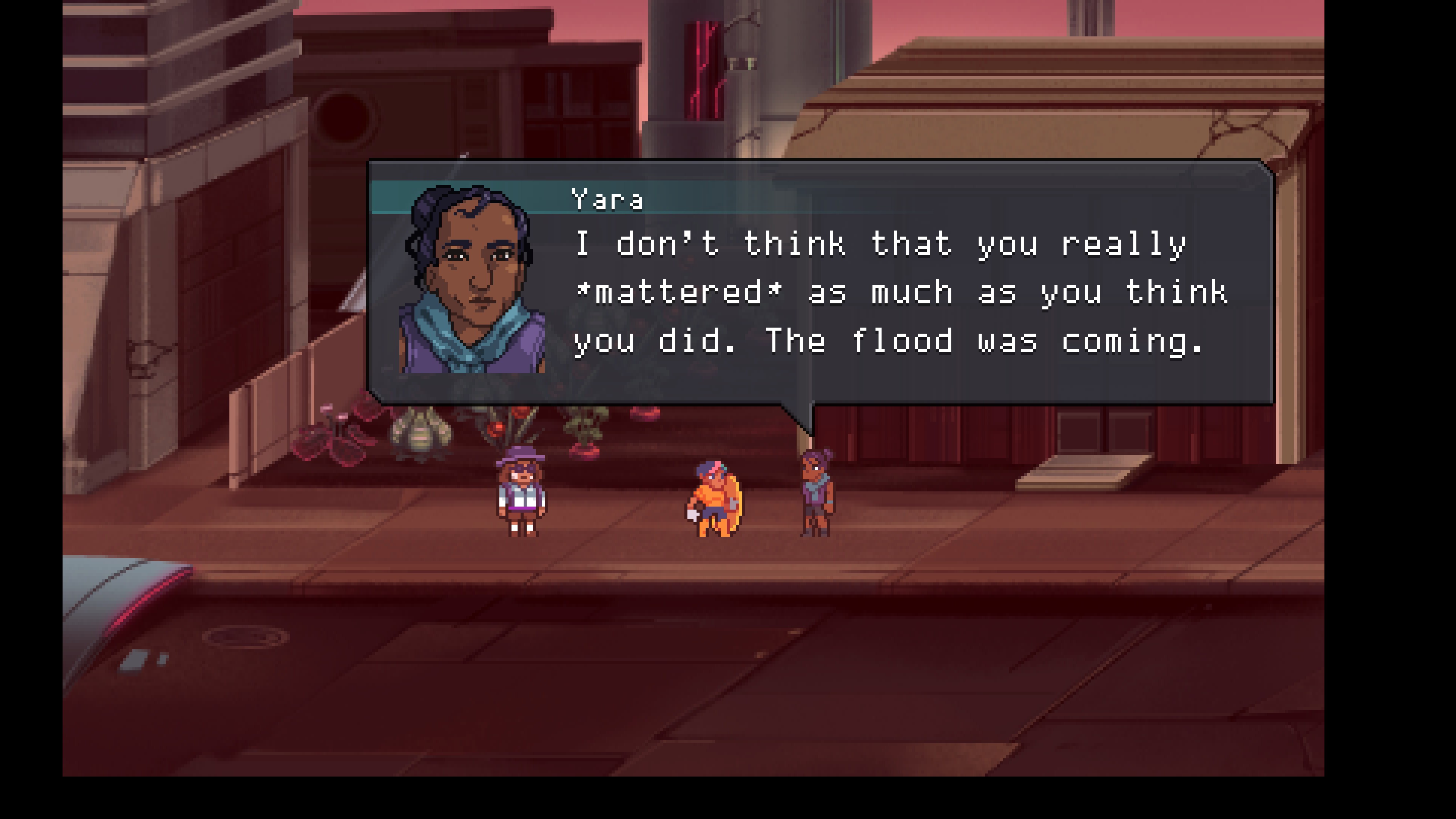
For a medium that hinges on player agency, the idea, so flatly stated, that one person can't, in fact, solve the world's problems is a gut punch, one I don't think any other title has delivered.
(The closest thing of which it reminds me is the mystery novel Three Bags Full, set in modern Ireland and starring a flock of sheep who set out to solve the murder of their tender. Once they arrive at a solution, though, they're faced with the problem of figuring out how to communicate it to the humans; eventually, they settle on a simple pantomime reenacting the murder at the local festival. After many travails, they get there, and at the climax of the story, they finally, with great difficulty, pull off their ovine game of murder charades...and everyone in their human audience just sits there, dumbfounded, not understanding anything that was being communicated at all. And the book is like, of course sheep can't solve a murder mystery; what did you expect.)
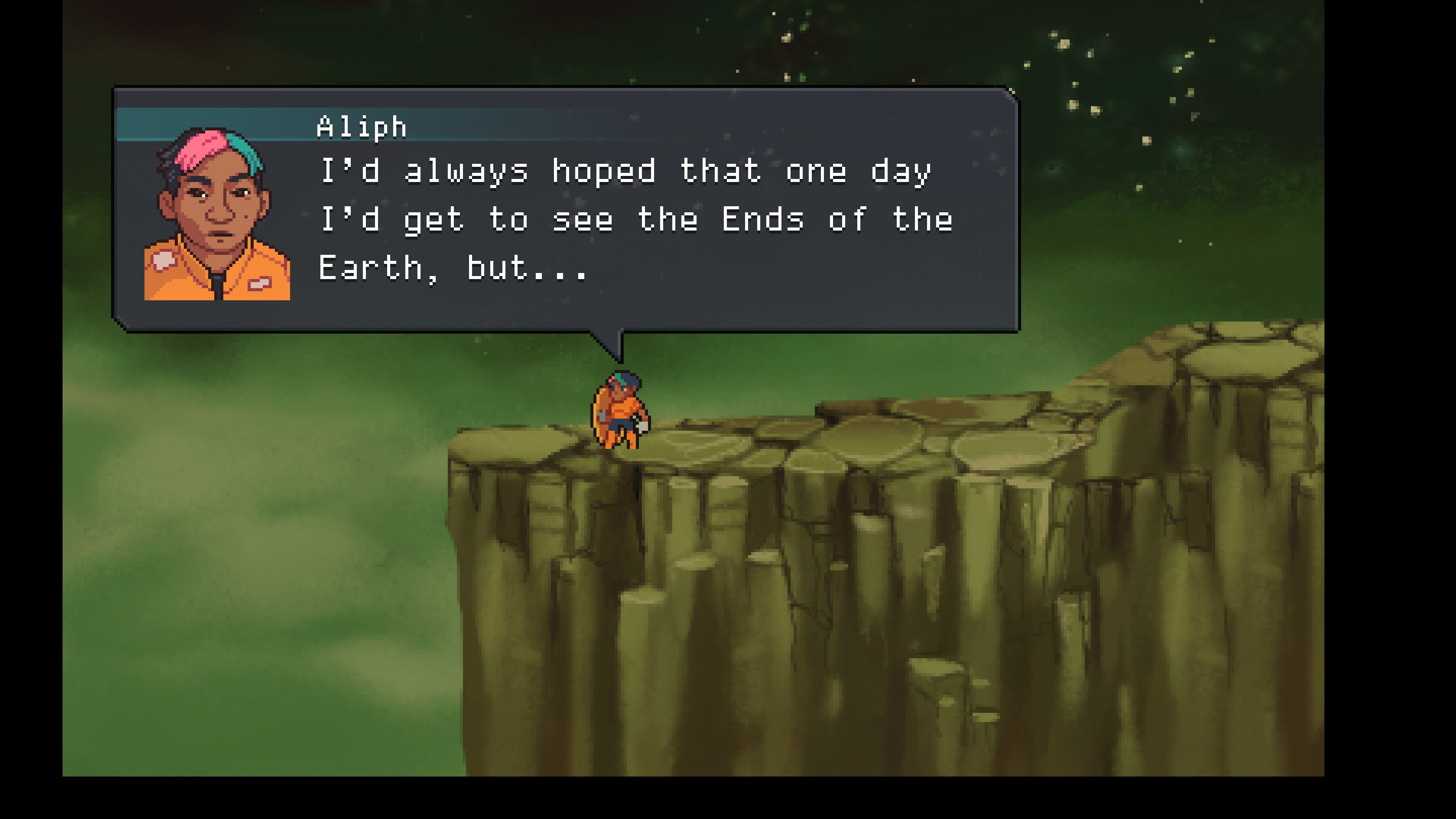
The thing is, looking back on the story that's proceeded this, Even the Ocean has been a very humanistic tale, from its insistence on showcasing people who don't usually pop up in video games to its examination of individual lives led in a society that doesn't support self-examination, leading to discussions of personal topics not usually broached in gaming. Yana, for example, will sometimes share memories of her late wife, and she'll eventually come to discuss how she married for love, yes, but also because her wife had life skills that she lacked, and she was grateful for the protection and reassurance the partnership gave her. She also, though, talks about ideals of romantic love and how she feels like the part pragmatism played in her choice of mate means that she's failed that test of its purity. Through other characters, the game offers a unique perspective on civilizational advancement: as humanity becomes overly-insulated from contending for its own survival against nature, it tends to build constructs without use or benefit, concerning itself with priorities that don't really matter, and, secure from being affected by the larger world, can't grow from its experiences; with its power unchecked, it paradoxically becomes more violent and abusive than in a "survival of the fittest" landscape. I'm not sure I agree with all that's posited, but the ideas here are unique and presented with a perspective and thoughtfulness that isn't usually found in this medium.
Even the closest thing the story has to a "villain," the mayor who seeks to defend and perpetuate Whiteforge's way of life, is presented as far from a monster: he loves Aliph as a daughter, is genuinely concerned for his people, and when the end comes, is scared in a genuinely human way, not a rat-bastard villain way; his priority is to get as many people to safety as possible. (You could also pull a "Ben in Night of the Living Dead was wrong" argument and say that the mayor's plan to use a surge of energy to float part of Whiteforge above the waters, while less idealistic, would have at least saved some people.) Even the Ocean's breadth of compassion and understanding for its characters makes comfort with its apocalypse even more disconcerting. Like, the little cutie above so proud of her trophy collection: are we supposed to feel good that she's dying? Not everyone deserved extinction here; I'd argue that no one really did. Even the Ocean such a people-centric title for most of its length, and then, in the denouement, we're asked to throw those people away so readily.
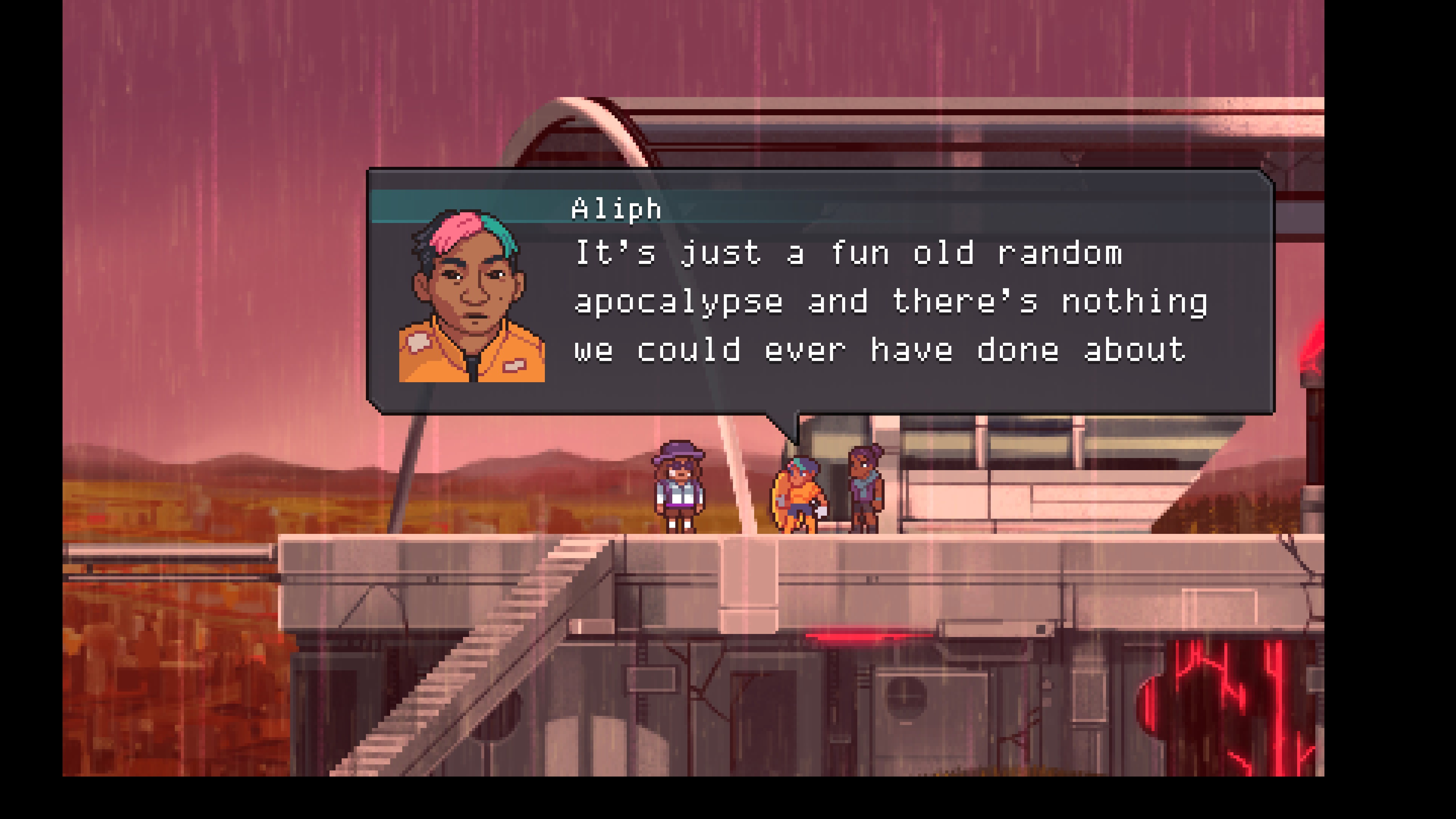
Still, to be utterly unoriginal in praising an original game, it's the journey rather than the destination, and though I'm of two minds about where it all ended up, more people should have the Even the Ocean experience.

